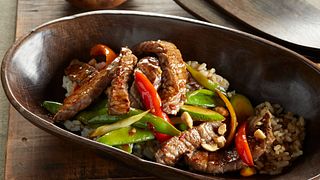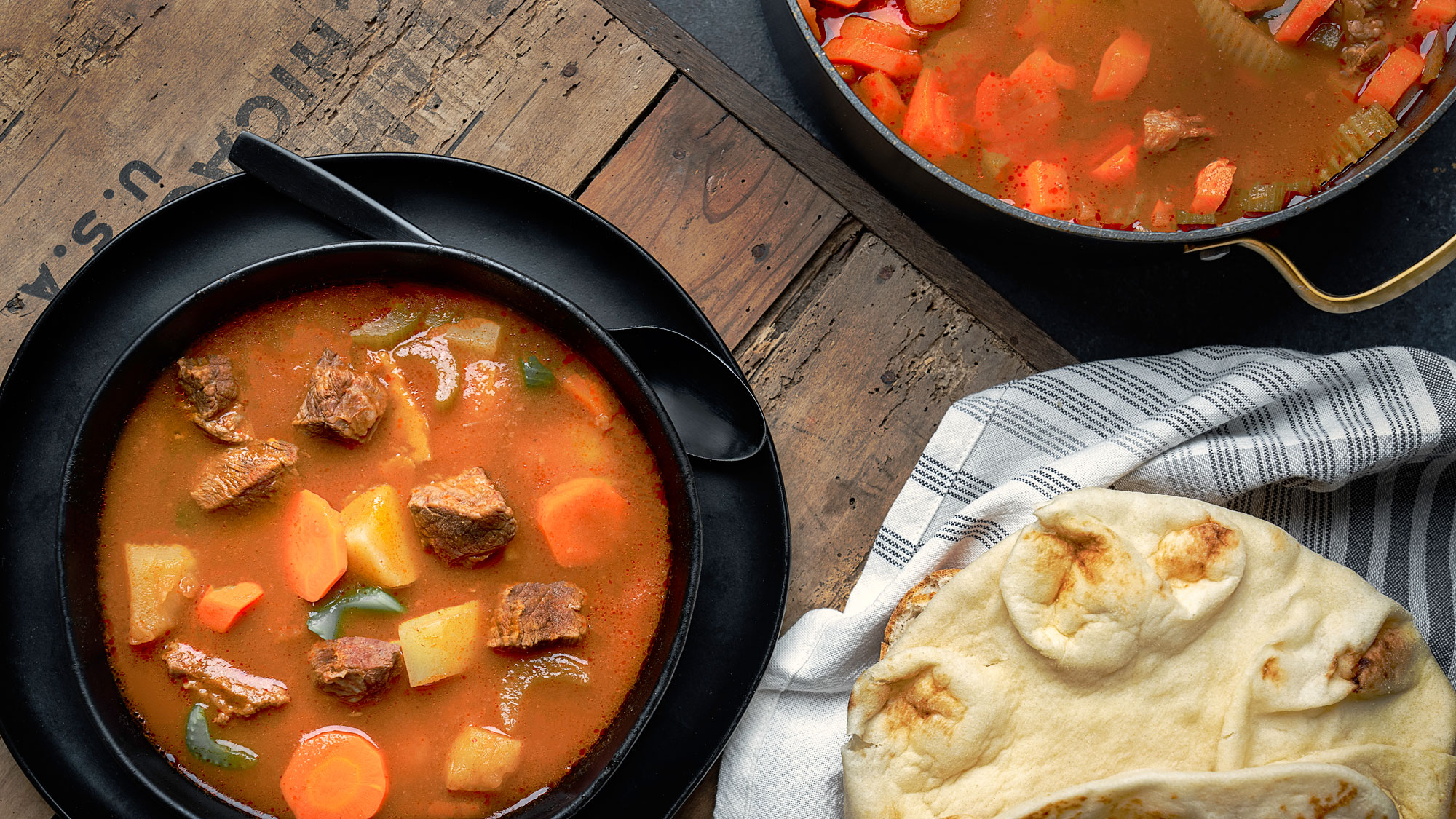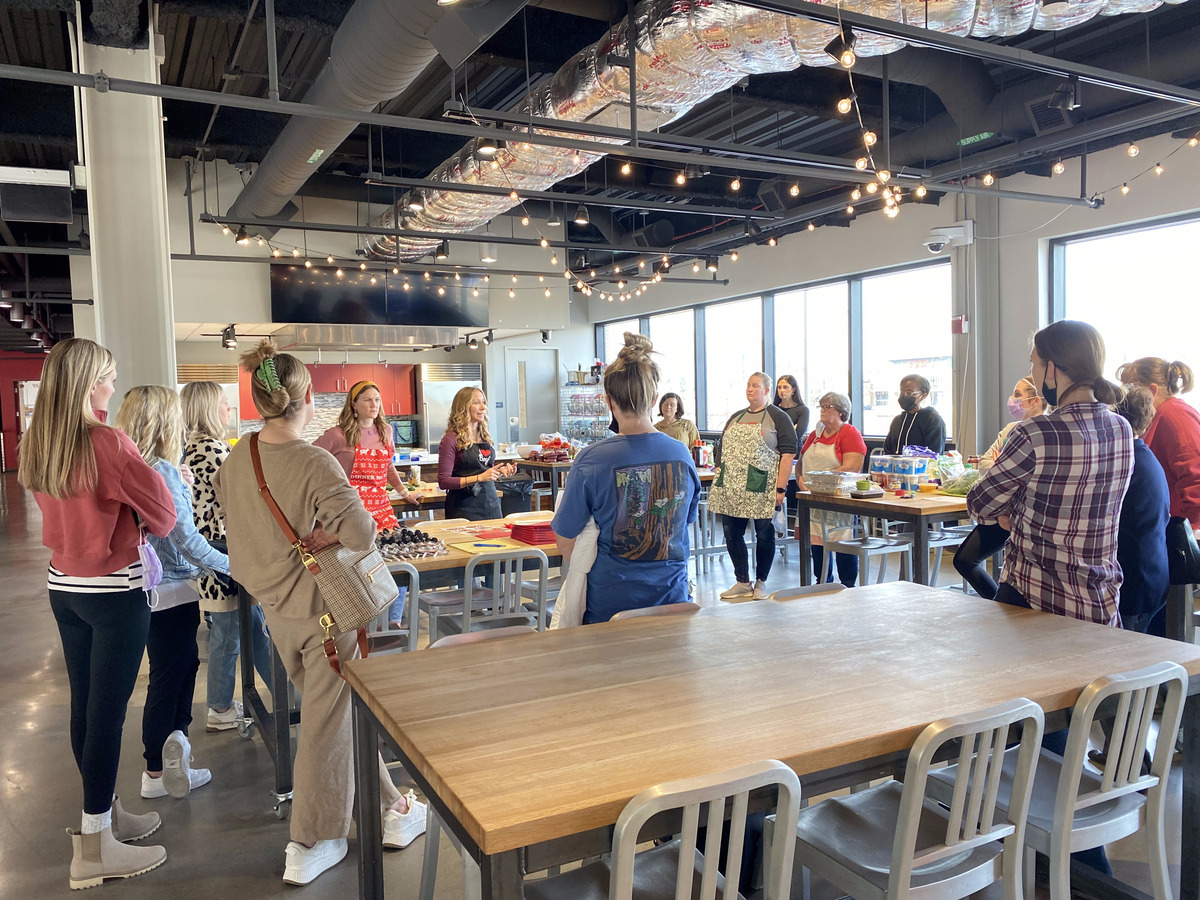Your dollar at work
Be one of the first to learn about KBC programming by signing up for our weekly newsletter!
2024
Kansas chefs' easy beef recipes
The Kansas Beef Council (KBC) is committed to encouraging the general public to eat more beef. A great way to do this is by funding quarterly consumer preference research dashboards for both Kansas and the Kansas City metro area. KBC then uses the information collected to develop and share delicious beef recipes that meet these preferences.This past quarter, consumers indicated that they desired flavorful meals that are simple and quick to make. They also stated that access to chef-inspired recipes would encourage them to eat more beef.
With these considerations in mind, KBC collaborated with two local chefs and asked, “What do you prepare for your families on a busy night after a long day of work?” Chef Kara Anderson and Chef Chad Tillman then created three flavor-packed and Midwest comfort food-inspired recipes.
- Chef Kara’s Cheeseburger Stuffed Potatoes
- Chef Chad’s TexMex Chili
- Chef Kara’s Mexican-Inspired Shredded Beef
Recipe videos and web pages were published so consumers can access the recipes in the format they prefer. The videos already have collected over 1 million views across KBC’s social platforms.
“Meals can have amazing depth of flavor, great nutrition and comfort without someone slaving in the kitchen all day,” Abby Heidari, KBC Director of Nutrition, said. “Families definitely will be pulling these recipes out when they want something easy, yet so delicious!”
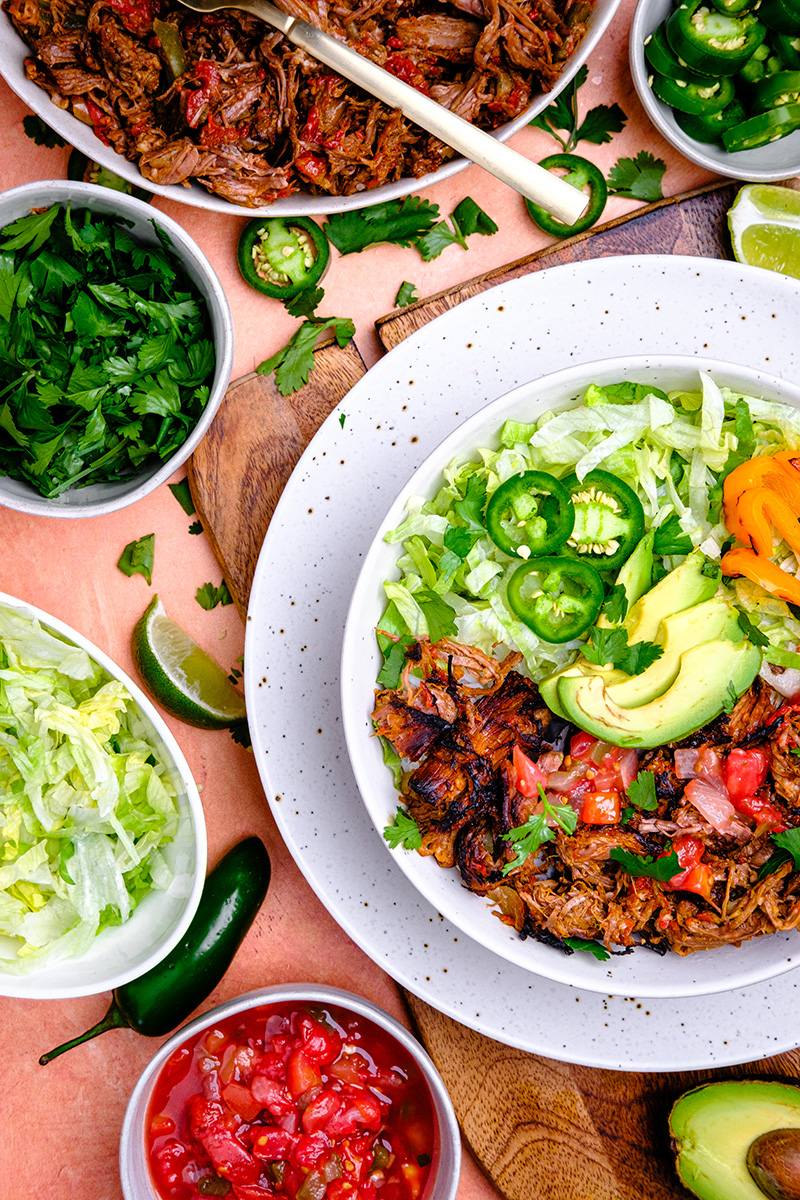
Kansas producers in the sunshine state
At the end of January, there was a pilgrimage of cattle producers from around the nation to Orlando, FL, for the annual CattleCon, hosted by the National Cattlemen’s Beef Association (NCBA).
Volunteer leaders on the Kansas Beef Council (KBC) Executive Committee went down to the Sunshine State to attend Beef Checkoff committee meetings where they received programming updates from Checkoff contractors.
Kansas beef producers are well-represented with at least one KBC Executive Committee member on all six Beef Checkoff committees. Those representing Kansas in Orlando were:
· Jake Pannbacker – Domestic Marketing
· Larry Kendig - International Marketing
· Barb Downey – International Marketing
· Philip Weltmer – Nutrition & Health (co-chair)
· Amy Langvardt – Nutrition & Health
· Stacy McClintock – Nutrition & Health
· Evan Lesser – Safety & Product Innovation
· Ty Breeden – Safety & Product Innovation
· Randall Debler – Safety & Product Innovation
· Jack Geiger – Stakeholder Engagement
· Larry Jones – Stakeholder Engagement
· Josh Mueller – Stakeholder Engagement
While Kansas is well-represented, the entire cattle industry is fully represented during these committee meetings.
“In all the committee meetings, every single person in that room making any decisions is involved in the beef industry somehow,” Debler said. “When we went through introductions at the beginning of my committee meeting, there were cow-calf producers, a stocker operator, a feedlot owner and even a dairy operator present. All of them are boots on the ground in beef production.”
Checkoff contractors provided updates on authorization requests presented during the Summer Business Meeting that took place in July and approved by the Beef Promotion Committee in the fall.
During the domestic marketing meeting, the Northeast Beef Promotion Initiative (NEPBI) presented its 2024 program plans and 2023 successes. NEBPI helps build demand for beef in Northeast metro areas like Boston and New York City.
“Grilling season in New York City is going to look a lot different than Washington, Kansas,” Pannbacker said. “So, NEBPI is focusing on reaching out to thought-leaders and influencers in the area because it all goes back to word of mouth. Who is going to spread that information and give us a good plug? NEBPI is very forward-thinking in its approach.”
To find out more information about Beef Checkoff contractors visit this webpage.
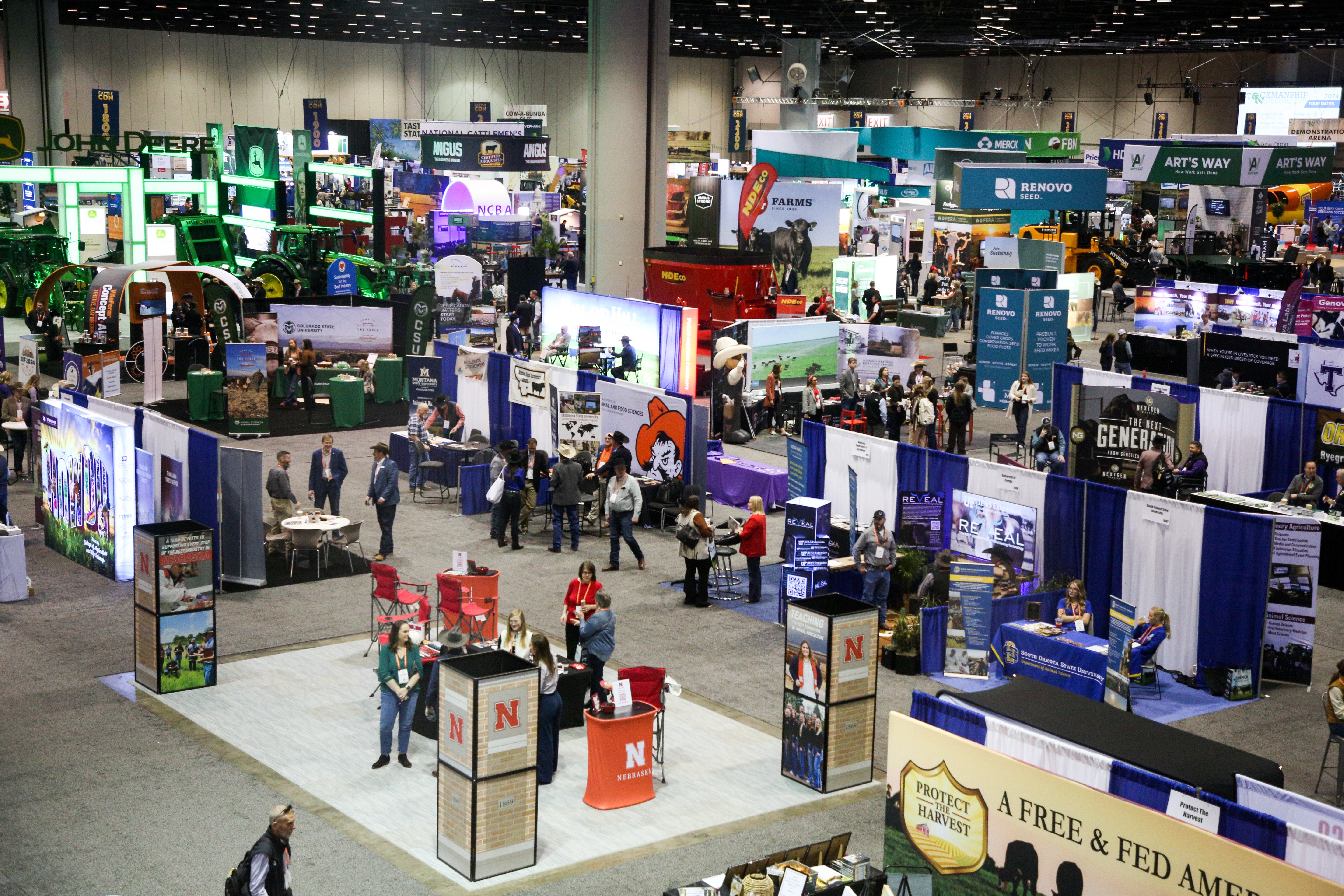
Simple and easy nutrition information for consumers
With so much happening in life and the constant bombardment of information from social media, it can be difficult for consumers to know where to find simple and accurate nutrition information.
A 2019 study revealed that the general public trusts highly in dietitians, and most believe dietitians provide fair and accurate information when making patient recommendations [1].
In response, the Kansas Beef Council’s (KBC) Abby Heidari, registered dietitian and director of nutrition, wrote an article showcasing her favorite tips for easy, nutritious dinners.
"I am a mom with busy children," Heidari said."I know how stressful it can be trying to figure out how to make sure my family is getting everything they need nutritionally with only a little time to prepare meals."
Heidari isn’t alone. KBC-funded consumer research indicates consumers in the Kansas and Kansas City markets desire easy-to-prepare nutritious meals.
The article provides a simple overview of basic nutrition and delicious recipes from Beef. It’s What’s for Dinner. and provides peer-reviewed research studies to provide fact-based information on beef’s nutritional benefits and how they impact everyday life.
The article will be promoted on KBC social media accounts and in paid digital advertisements.
[1] https://www.pewresearch.org/science/2019/08/02/trust-and-mistrust-in-americans-views-of-scientific-experts/
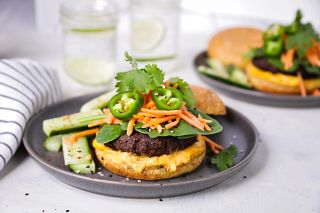
Heart Health MOnth Outreach
Just like that, January has come to an end, and love has filled the air. Nothing smells more like love than beef cooking. Grilling up beef for someone is not just a sign that you love them, but that you also love their heart – literally.
The Beef Checkoff has invested in various nutrition studies to determine if beef can be included in a heart-healthy diet. There are more than 30 scientific studies that support the role of lean beef in a heart-healthy diet and lifestyle [1]. One of the most notable is the Beef in an Optimal Lean Diet.
To help spread the love this Heart Health Month, the Kansas Beef Council (KBC) is connecting with and reaching various health professionals with heart-health-focused advertisements, American Heart Association (AHA)-certified recipes and other resources on lean beef in a heart-healthy diet.
Full-page print and digital ads have been placed in publications catering to and read by the thousands of Kansas and Kansas City-area nurses, dietitians and physicians. These ads share the different heart-health research studies and how lean beef can fit into a heart-healthy lifestyle.
KBC is again sharing AHA-certified recipe cards and other resources with cardiac rehab centers around the state to help support their patients’ journeys.
Lean beef research helps ensure that anyone can enjoy a great-tasting piece of beef, no matter what. KBC uses these Beef Checkoff-funded studies to correct misconceptions about lean beef’s potential role in a heart-healthy diet by interacting directly with health professionals.
[1] McNeill SH.Inclusion of red meat in healthful dietary patterns. Meat Sci 2014;98:452-460.
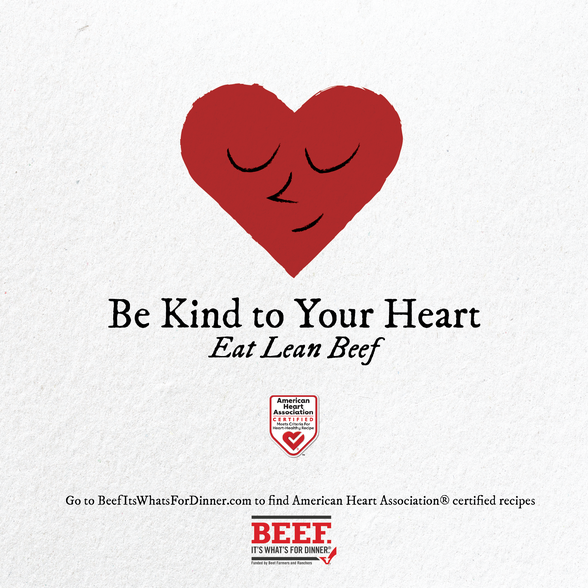
Arizona nutrition outreach sponsorship
Kansas is one of the few states where cattle outnumber people, beef is present at most celebrations and most people are connected to agriculture.
This unique combination allows the Kansas Beef Council (KBC) to support other states that have larger populations but lower cattle inventory. In 2023, the KBC Executive Committee voted – in partnership with the Nebraska Beef Council (NBC) – to help fund nutrition outreach programs with the Arizona Beef Council (ABC).
ABC has a successful track record of effectively educating health professionals with science-based information about beef nutrition and beef production. Examples of past outreaches include gate-to-plate experiences with dietetic students from multiple universities that help provide firsthand experiences of what happens on a ranch and clarify misconceptions about sustainability, nutrition and welfare.
Other healthcare and nutrition expert outreaches have included attending the School Nutrition Association of Arizona Trade Show and the Arizona Nurses Association Annual Conference. At these professional conferences, ABC has been able to grow its contact list of people interested in receiving more information about beef meals and nutrition.
KBC has a long history of partnering with high-population states to get accurate and science-backed information about beef nutrition and production to those who need to hear it. In collaboration with NBC, KBC also helps fund nutrition outreaches in California, New York and the Southeast.
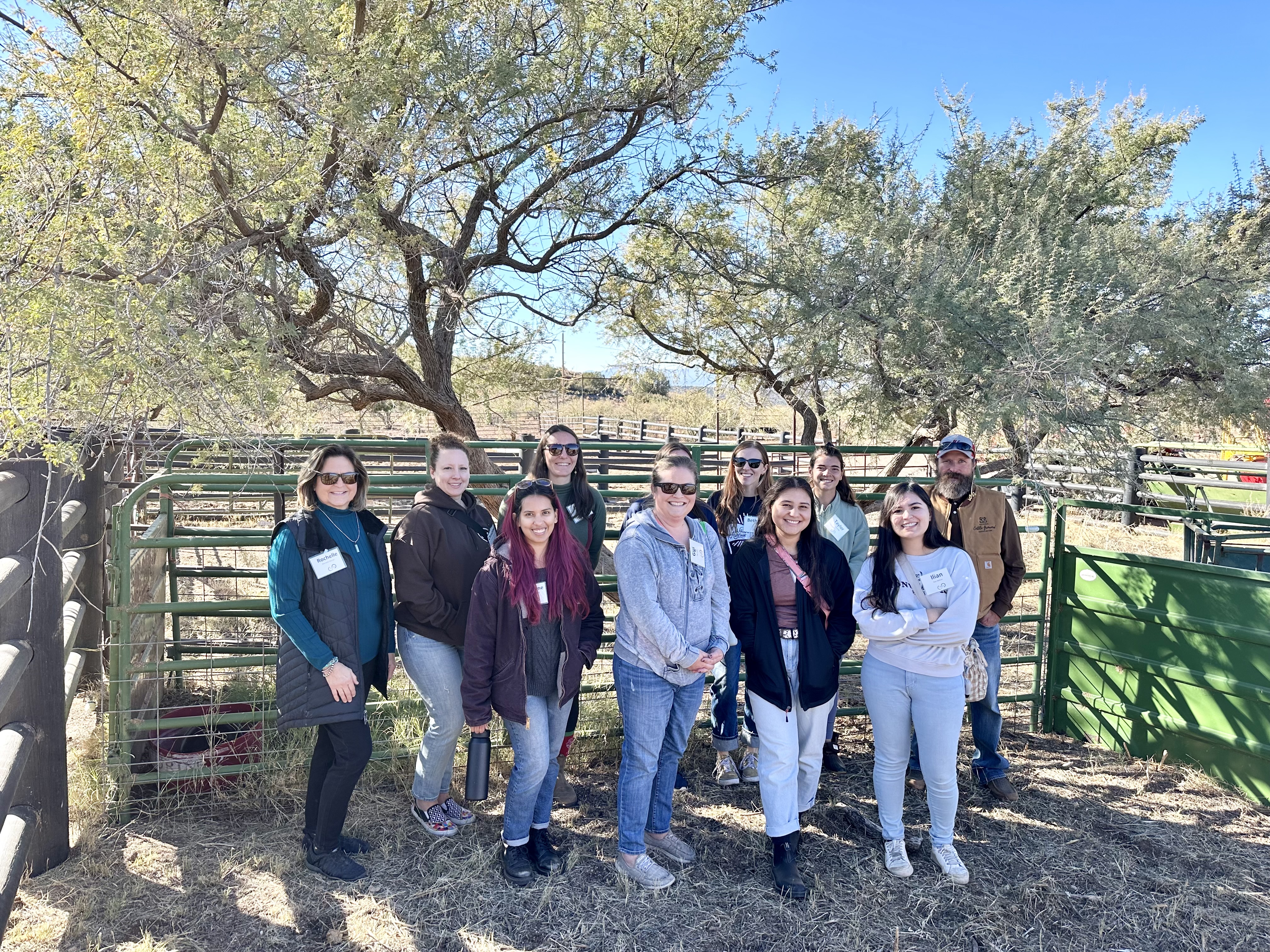
Cooper beebe: powering his way to athletic success
For K-State Wildcat fans, the question is not if they will hear the name of home-state hero Cooper Beebe at the 2024 NFL Draft, but rather when they will hear it. Beebe had a historic year for the Wildcats by receiving Consensus All-American status, a slew of Big 12 honors and finalist status for the William V. Campbell Trophy.
There is no doubt that Beebe will excel at the professional level, and he got there by being elite on and off the field.
Beebe has fueled his athletic success with beef, a high-quality protein that provides over 10 essential nutrients necessary for athletes.
“It is the kinds of foods you eat. Foods with a big amount of protein is where us big guys live,” Beebe said. “High-protein options, like beef, help us power our bodies to get to where we need to be.”
Beef has made an impact on Beebe’s nutrition, but he also has used it to help impact the community around him.
The K-State offensive line, also known as the K-State Beef, teamed up with the Kansas Beef Council and Wildcat NIL to provide fresh ground beef to local food banks.
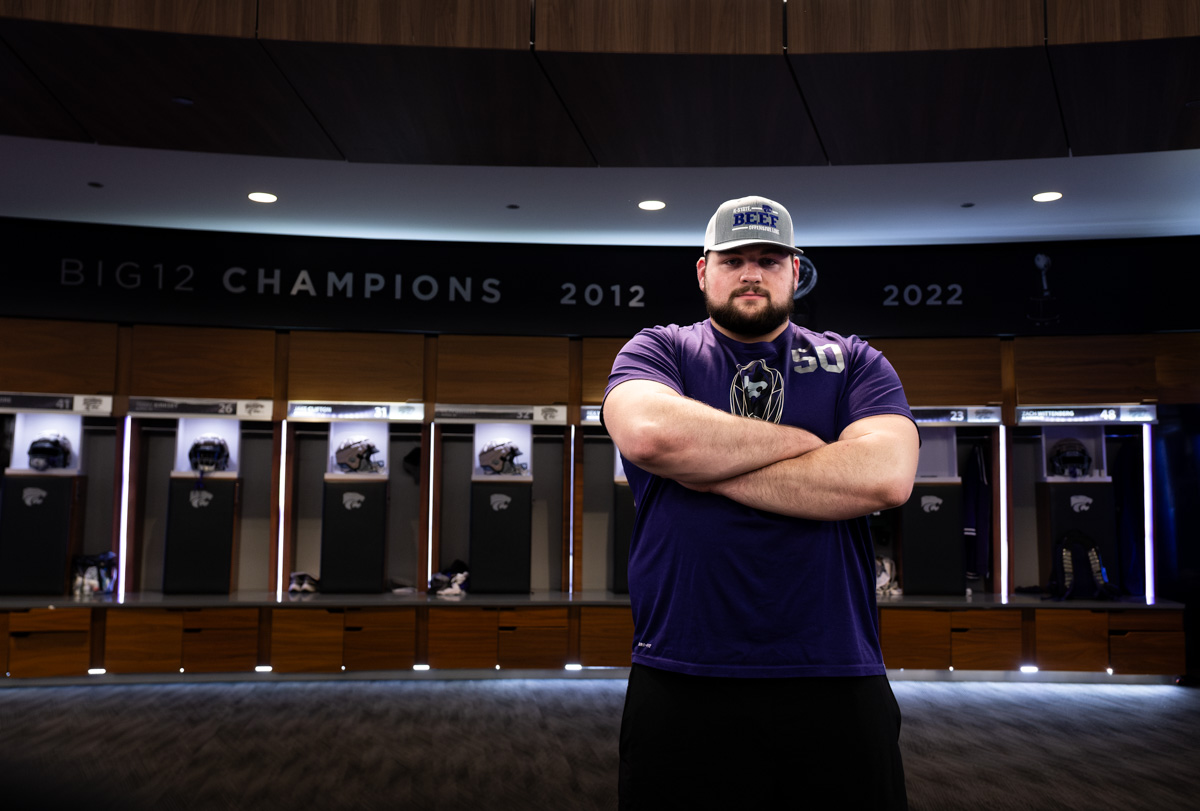
early 2024 bqa trainings
Cattle producers know the only way to handle their stock is the right way. To that end, producers regularly should have the opportunity to learn about best practices and new research.
The Beef Checkoff-funded Beef Quality Assurance (BQA) program has been educating cattle producers and handlers on the best animal welfare and handling practices since 1991. These practices ensure a high-quality product, and the research-backed training and certification help generate consumer confidence.
Producers not only benefit from BQA certification because it increases consumer trust but also because a 2019 study reports that there is nearly a $17/ head premium at auction for BQA-certified lots [1]. The
Kansas Beef Council (KBC) is committed to providing Beef Quality Assurance trainings to cattle industry personnel in Kansas. KBC and K-State Research and Extension are providing BQA training and certification opportunities throughout February and March. Dr. A.J. Tarpoff, DVM, associate professor of animal sciences at Kansas State University, will be the primary presenter at all trainings. Dates and locations include:
- Leavenworth County (Basehor) – February 3
- Coffeyville (in conjunction with the OKAN Conference) – February 20
- St. Francis – February 22
- Junction City – March 18
- Syracuse – March 26
If you are unable to make any of these trainings, BQA.org also provides online modules for certification and re-certification.
[1] https://www.bqa.org/Media/BQA/Docs/bqa-value-study-digital.pdf

2023
KBC at the annual kla convention
The annual Kansas Livestock Convention is one of the few opportunities for beef producers to come together, learn more about the future cattle markets and connect with other industry entities. The Kansas Beef Council (KBC) staff hosted a trade show booth and the Kansas Soybean Commission-sponsored Consumer Trends forum. Mandy Carr, NCBA Senior Executive Director of Scientific Affairs, spoke during the forum. Carr’s presentation was broken into three parts: who the modern consumer is, where the modern consumer is and what it means for the beef industry.
The modern consumer spends more than 12 hours a day consuming media, and digital media consumption will reach nearly eight hours by 2025. “Streaming is where we are going to meet consumers,” Carr said.
Both NCBA and KBC have already started shifting marketing efforts towards streaming advertisements. In 2023, KBC had over 5 million views on videos placed on YouTube and ConnectedTV (Hulu, Disney+, and other streaming sites).
View a Rundown of KBC 2023 Marketing Efforts Here
The beef industry has made significant changes in beef genetics and product quality – through the help of Beef Checkoff-funded research – over the past few decades. This has resulted in beef’s unique and high-quality flavor profile. Beef’s eating experience once again reigns as the top reason people eat more beef. “We can’t afford to lose beef’s eating experience,” Carr said.
While taste is what keeps consumers coming back to beef, lean cuts and recipes are the ways for beef to enter someone’s diet.
When looking at consumer protein preferences, Carr pointed out that consumers want variety. Over 70% of consumers who eat alternative proteins also consume beef every week. Consumers are not turning away from beef; they simply add alternative proteins to their diet.
“The yearly Consumer Trends forum at the KLA convention allows for an in-depth look into the ever-changing consumer, their protein preferences, and how checkoff-funded programs are efficiently marketing to this diverse population,” Scott Stebner, KBC Executive Director, said.
KBC would like to extend a thank you to all who stopped at the beef council’s booth or attended Consumer Trends forum during the KLAConvention.
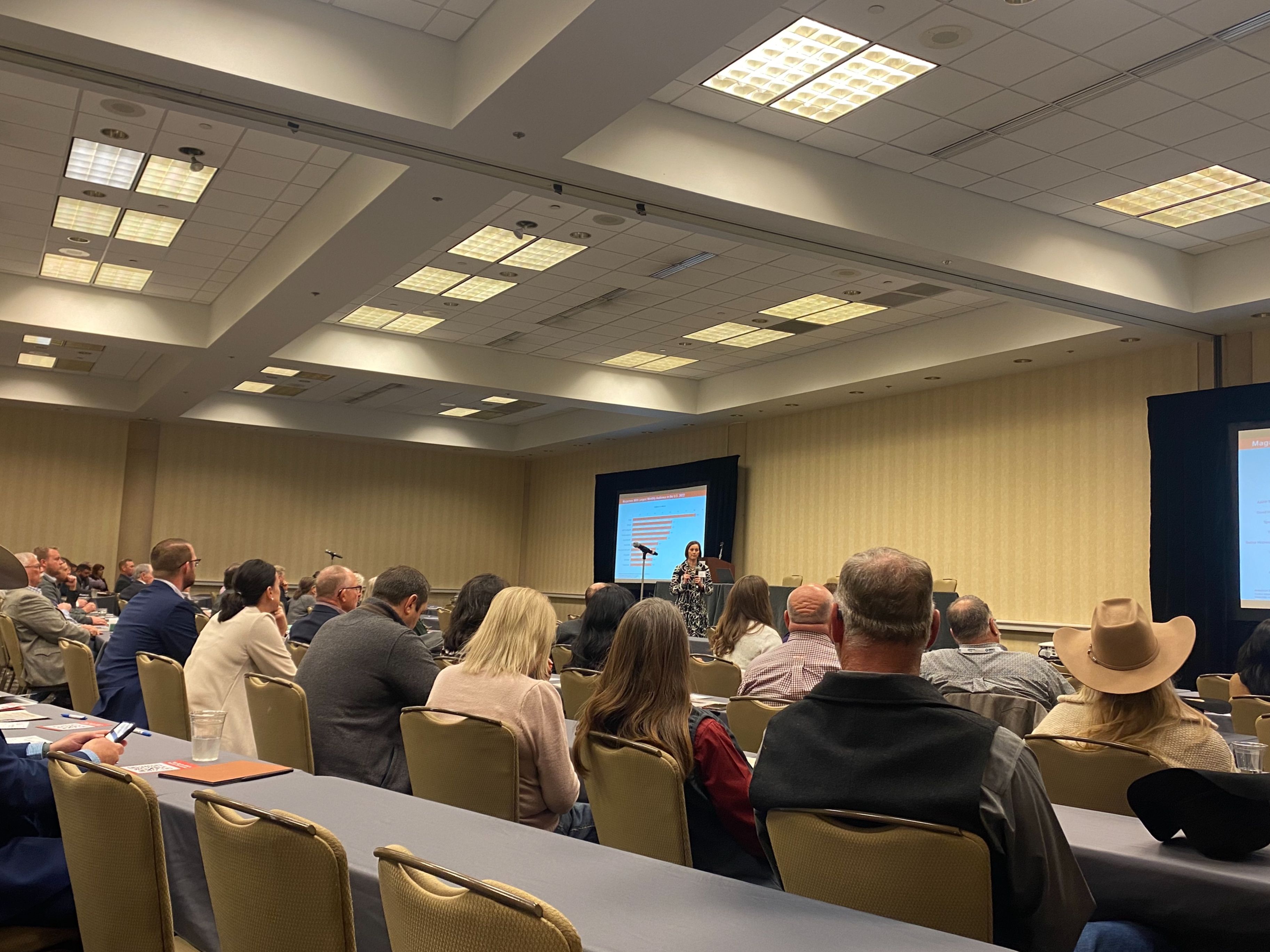
K-12 School foodservice Guide
In 2023, the Kansas Beef Council (KBC) helped distribute the Beef Checkoff-funded Beef Resource Guide for School Foodservice. Originally developed by the Wisconsin Beef Council, this electronic resource guide highlights beef nutrition, versatility, practical tips and much more.
The guide was shared with over 900 individuals through an e-blast sent to KS School Lunch Program representatives and various contacts in onsite foodservice positions. The KSDE School Nutrition Programs September Update included the resource guide and was distributed to their mailing list.
School foodservice providers are a great way to help get beef into school lunch plans. Despite tightening budgets, the resource guide helps those making menu decisions know about economic cuts, proper thawing and proper preparation to ensure that they get the best use out of their high-quality protein option.
“Beef nutrition is highly important for adolescents,” Abby Heidari, KBC Director of Nutrition, says. “When kids miss out on high-quality proteins, their classroom performance can greatly diminish. We want to help school foodservice providers help kids reach their maximum potential in the classroom while still enjoying delicious meals.”
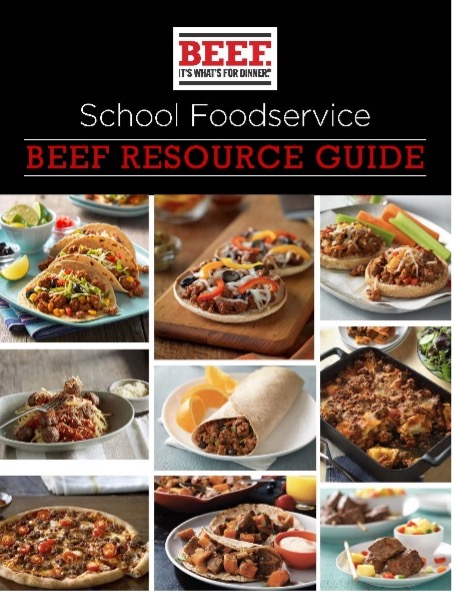
Consumer Preferences research
Every day reports are released stating what the modern consumer wants from the beef industry. Media outlets - both agriculture-specific and mainstream - report that the general public wants to switch to all organic or cut out all red meat. Despite this, there may be a difference between what the consumer theoretically wants and actually buys.
Ted Schroeder, professor and researcher of agricultural economics at Kansas State University, and a team of other K-State researchers wanted to learn if these reported consumer preferences -especially those around sustainability - match up with consumer spending habits.
Schroeder and his team sent out a nationwide survey in mid-March of 2023 and received over 3,000 useable responses. The sample of people surveyed closely matched US Census demographic data.
During the survey, participants ranked nine beef attributes in order of importance. The nine attributes were: animal welfare, produced without hormones or antibiotics, low-carbon beef (defined as beef produced with 10% less greenhouse gas emissions), price, supports local farmers, freshness, flavorful/ juicy/ tender, safety of food and nutritious content.
Freshness was deemed the most important attribute with 51%of respondents putting it in their top three attributes. Safety of food and price were ranked second and third, respectively, for the next top importance.
Product quality and safety have time and time again been top of mind for consumers and consumer research has shown that for decades.
The most surprising finding was that low-carbon beef was the least important attribute due to the amount of media attention the subject continually receives.
However, 57% of the survey respondents put this environmental sustainability attribute in their bottom three considerations. Only 11% put low-carbon beef in their top three attributes – the least of all the attributes.
The results of the survey show that there is room for every type of beef. While organic and natural beef labels are not deal-breakers to the average consumer, there is still a market for those types of beef products. This means there is room for many types of beef production models. Schroeder noted, “The challenge is a single strategy is likely to be less successful than a variety of strategies [e.g. organic or natural beef labels] targeting varied consumer segments” about the diversity of preferences.
Schroeder and his team then took these findings and made six recommendations for the beef industry at large. These recommendations were mainly about the continued development and adaption of production technology to make the final beef product more efficient, while keeping the eating experience beef provides.
"This type of consumer insight research is advantageous for the beef industry because the consumer is king, but we must realize what they say and how they actually spend their money doesn’t necessarily always line up,” Randall Debler, KBC Executive Committee chair, said. “Schroeder and his team did excellent work collecting and analyzing data that the beef community can use to continue making a great product.”
This consumer insights research is partially funded by the Kansas Beef Council through the Beef Checkoff, but opinions and recommendations in the report are solely those of the authors and do not necessarily represent those of KBC.
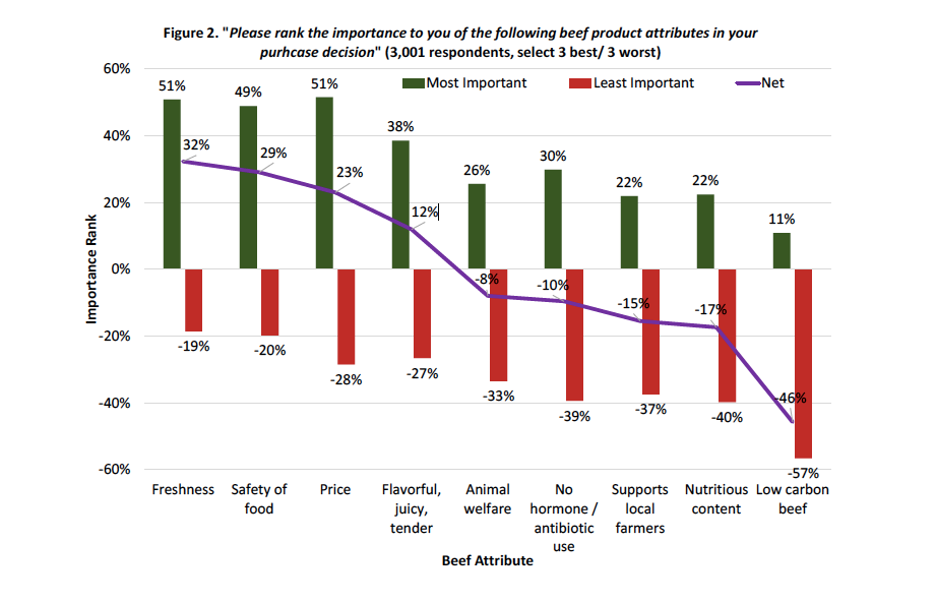
Connecting with Future dietitians
Young dietitians typically begin their careers with a simple desire to help people make better food decisions. However, as the years go by, they may be asked to take on additional roles, such as serving as a cooking instructor, translating academic research, and becoming a media spokesperson. Nevertheless, not many young dietitians see themselves as communicators or view communication as a key skill to have.
Recognizing this gap, the Kansas Beef Council (KBC) hosts scientific communication trainings with The University of Kansas Medical Center and Kansas State University dietetic students annually. These trainings center specifically on protein and how to effectively communicate about protein needs, with beef as the main example. The most recent trainings took place November 2nd and 3rd.
Abby Heidari, KBC Director of Nutrition, starts the trainings by sharing about the importance of protein in the diet and dispelling misconceptions about beef’s role. Then students have the opportunity to learn about beef production directly from Kansas beef producers, covering topics such as the various labels that can be seen on beef products and the use of hormone implants in cattle raising.
“It is important for us [beef cattle producers] to connect with those who are going to be recommending our product to their patients one day,” Wrenn Pacheco, member of the KBC Executive Committee, said. “If these students have a good understanding of beef production, they are more likely to recommend and talk about our product in their careers.”
The trainings also feature a media communications presentation by Melissa Joy Dobbins, a registered dietitian and owner of SoundBites, who shares insights on how dietitians can effectively present nutrition information through various channels.
To cap off the training, students have the opportunity to prepare a dish featuring beef sirloin, allowing them to gain hands-on experience in cooking beef while also presenting the nutritional aspects of their dish.
These trainings enable students to apply evidence-based guidelines as they practice delivering science-based protein recommendations.It also allows students to make connections directly with the beef industry and gain hands-on experience that will serve them immensely as they start their careers.
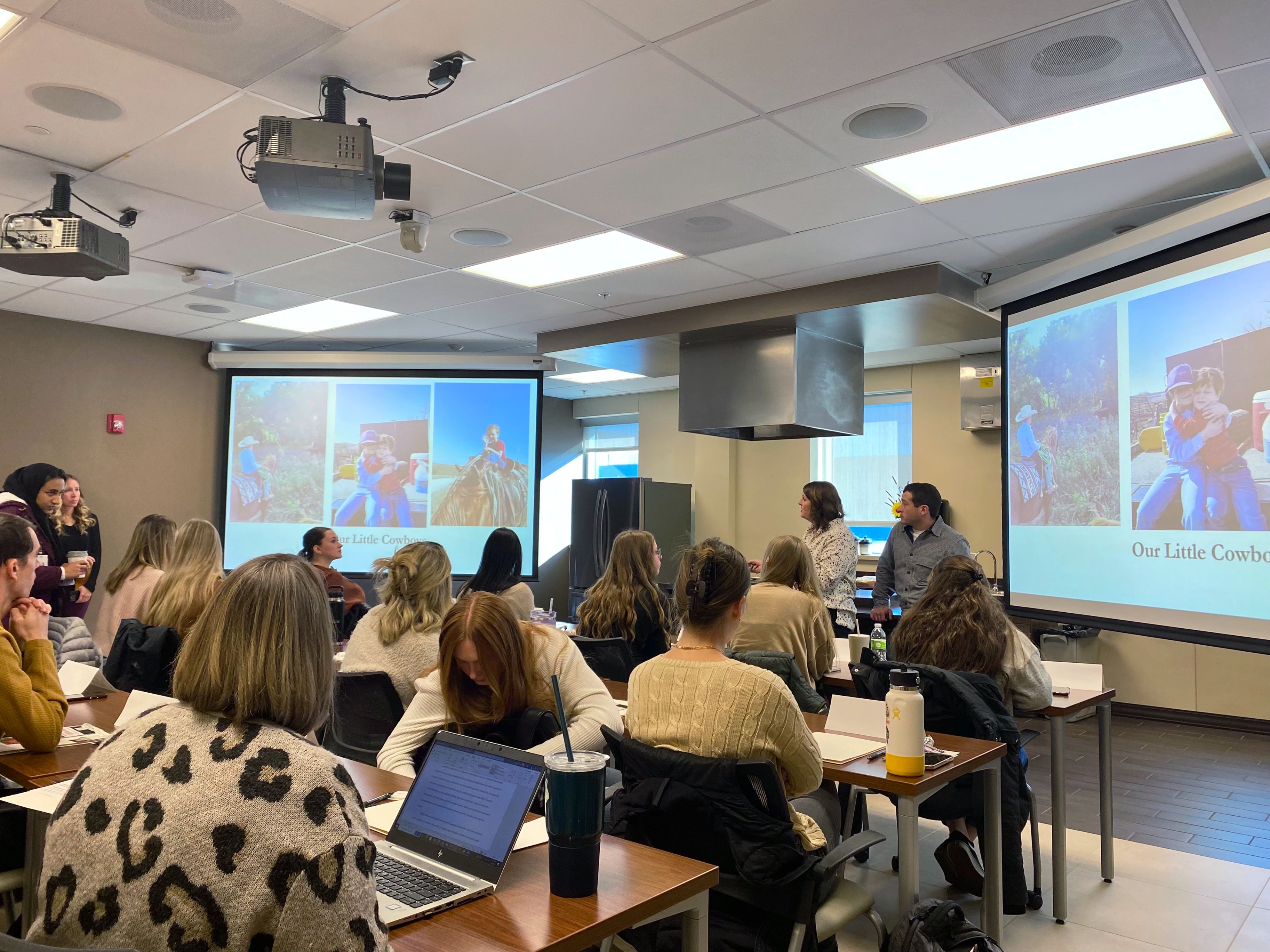
Promoting beef consumption for adolescent girls
One of the main concerns about beef consumption is that it is perceived as less healthy than other protein or food options. This sentiment, compounded with the notion that beef is considered a more “masculine” food, potentially can deter some women from including beef in their diets.
Women – especially young women – who do not consume enough red meat, like beef, can develop nutrient deficiencies. In the United States, it’s a significant issue, with over 20% of females aged 15 to 49 experiencing iron deficiency.[1]
With this, the Kansas Beef Council (KBC) recently placed multiple print and digital advertisements targeting health professionals to communicate the iron requirements for women at different ages and how beef can help meet essential iron needs.
The checkoff-funded ads were featured in online and print industry publications and conferences for physician, dietitian and nurse audiences.
“Adolescent girls benefit greatly from beef consumption, as it offers key nutrients many girls might be missing,” Abby Heidari, KBC Director of Nutrition, said. “We want health professionals to be aware that incorporating beef into a healthy and balanced diet can be an effective means of preventing common nutrient deficiencies.”
These ads are estimated to have already reached thousands of Kansas health professionals. The assets were designed to have a nationwide reach and will be used by multiple state beef councils along with the Federation of State Beef Councils.
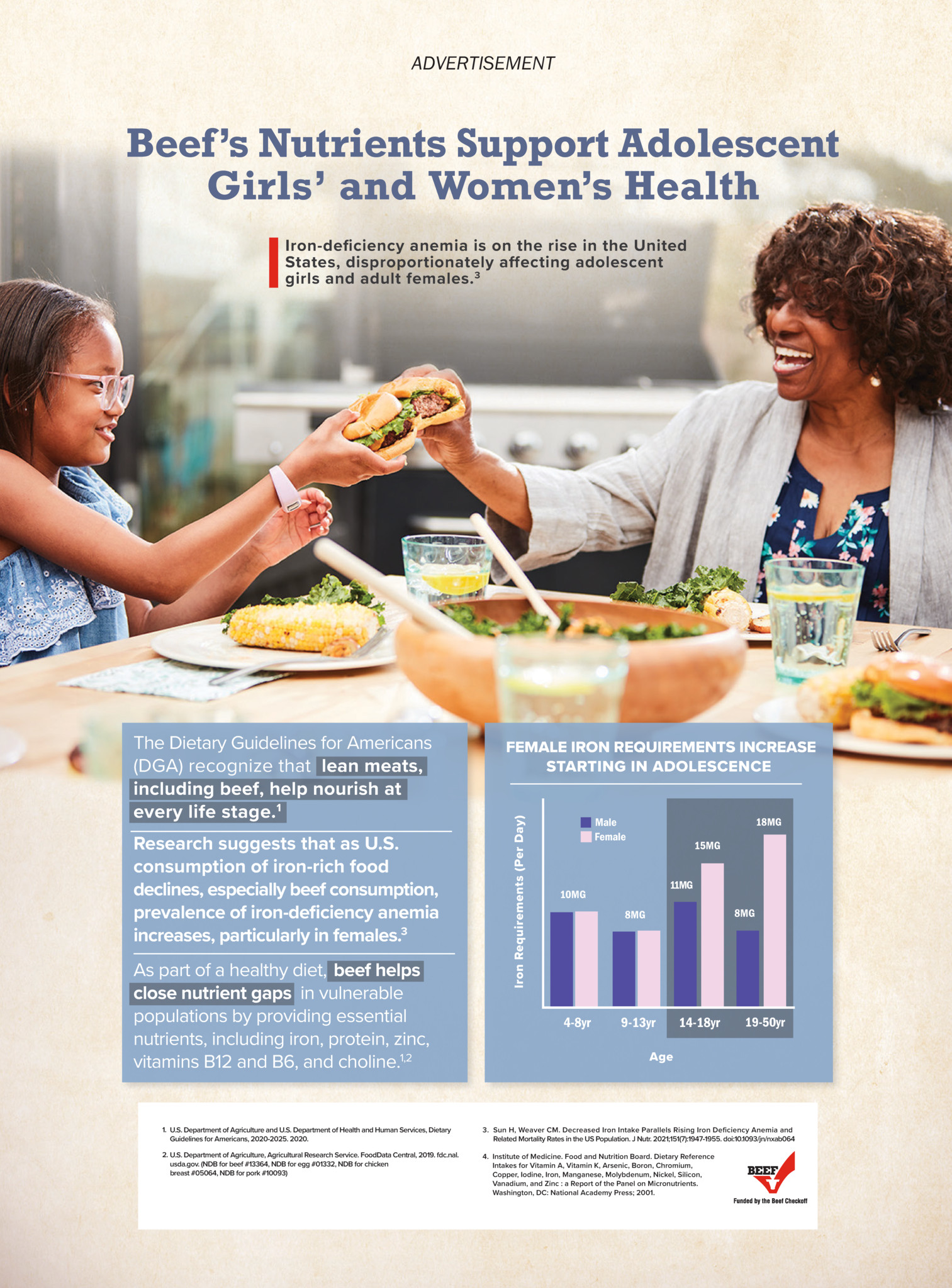
Easy Recipes for Consumers
When looking for new recipes to try, most people are not looking for the family history of the recipe writer when figuring out what to cook for dinner. People just want to know what they need, how to do it and how long it will take to prepare.The Kansas Beef Council (KBC) wants to make cooking beef as easy and accessible as possible. So, KBC has created multiple listicles based on various consumer trends and demands this year.
Listicles are website articles that are a list over a certain topic. For example, KBC recently created a soup and stews listicle for the fall. In the soup listicle, 13 beef soup and stew recipes are shared so consumers have a variety of ideas and options from which to choose. The goal of the listicles is to be easy to follow and share straightforward recipes.
Other listicles produced this year are:
- 9 Flank Steak Recipes
- 9 Flat Iron Steak Recipes
- 7 Sirloin Recipes
- Ribeye Recipes
- 11 Strip Steak Recipes
- 20 Beef Pasta Recipes
- 10 Comfort Casserole Recipes
- 9 Beef Appetizers
- 5 Beef and Fruit Grilling Recipes
- 10 Slow Cooker Recipes
The listicles are first placed as native ads on various websites. Native ads are those typically seen while reading different news sites or on the sides of various web pages. The graphics are posted to various KBC social medias like Pinterest and Instagram. These are then turned into targeted ads.
To ensure the digital advertising budget is used as effectively as possible, KBC split-tests digital ads. Ad split-testing is when KBC creates and posts multiple ads with small variances in verbiage, colors or other aspects to see which one will generate the most engagement.
Once there is robust data collected, the most efficient and engaged ad is the only one that continues to be promoted.
This helps KBC use advertisements that effectively engage consumer audiences across the state and nation.
The listicles have produced over 12 million views across social media platforms and generated over 200,000 clicks. These markers prove KBC ads are performing well above industry averages.
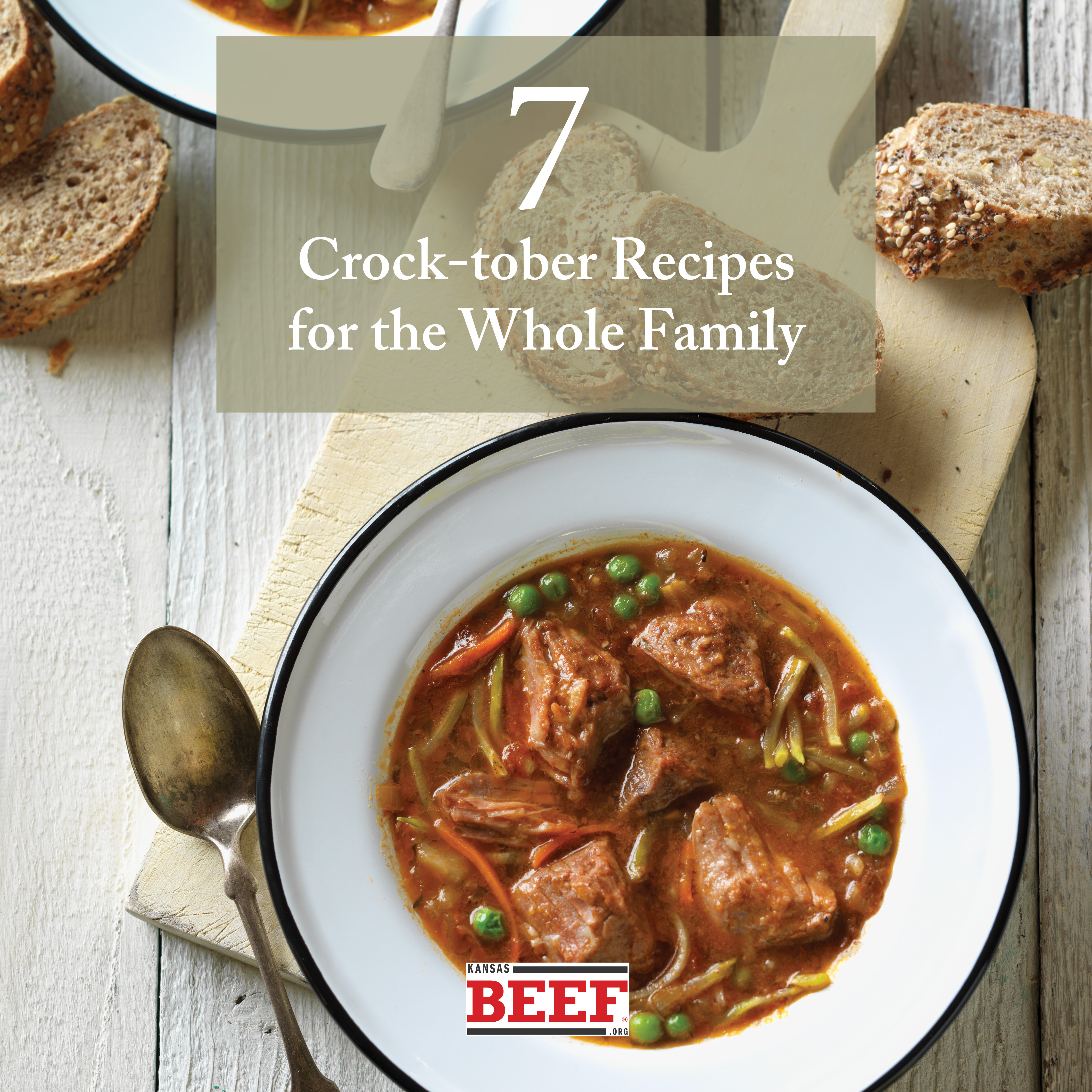
Partnerships in Action Conference 2023
Coordinated by the Federation of State Beef Councils and funded by the Beef Checkoff, the annual Partnerships in Action (PIA) conference brings state beef councils together to build a stronger state and national partnership. The focus of this conference is to discuss national programming, share state-led efforts and expand upon existing assets and successful campaigns.
Attendees learned about program strategy, current consumer trends and preferences, and upcoming Beef. It’s What’s For Dinner. promotions. More than 80 state staff from 32 state beef councils participated in the event, including the Kansas Beef Council’s Scott Stebner, Abby Heidari and Grace Jacobson.
“Connecting with other state beef councils and learning what national programs we can implement in our state is essential,” Grace Jacobson, KBC Communications Coordinator, said. “These partnerships help us effectively leverage Beef Checkoff funds and create programs that have the greatest impact to our producers.”
KBC is part of the Federation of State Beef Councils and voluntarily invests in the Federation to enhance the national Checkoff and leverage producer dollars through a coordinated partnership. The Federation was established in 1963 by grassroots producers as a more concerted and focused effort to conduct national beef research and promotion programs.
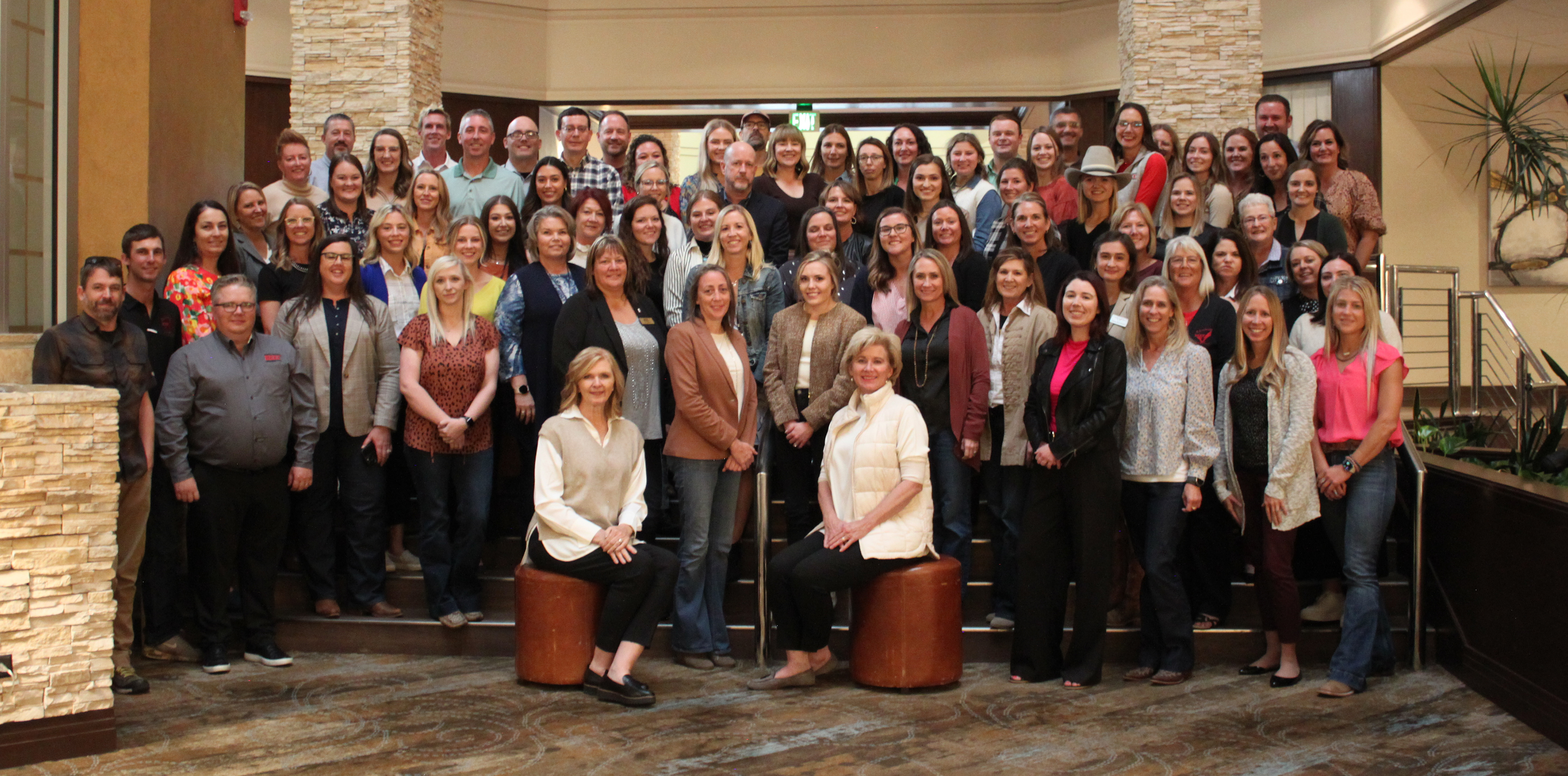
Meat-ing your needs with the chief's rd
Proper nutrition, both pre- and post-workout, can either elevate your fitness or limit your potential. No one sees that play out more than Leslie Bonci, registered dietitian and team dietitian for the Kansas City Chiefs.
The Kansas Beef Council (KBC) teamed up with Bonci to share how everyone can fuel their bodies like a pro in the article “Meat-ing Your Needs”. The article noted how beef is a good source of nutrients essential for active individuals to optimize their athletic potential.
“Eating beef may face skepticism in some health and fitness circles, so we want to showcase how it can genuinely advance an individual’s performance,” Abby Heidari, R.D., KBC Director of Nutrition, said. “By collaborating with Bonci, we can reach both sports dietitians and individuals looking to achieve their fitness goals.”
In the article, Bonci even shares some of her favorite beef recipes that are perfect for athletes and fitness fanatics!
The article will be promoted through various advertisements on social media platforms, as well as native ads. Native ads are the ads typically seen while reading different news sites or on the sides of various webpages.
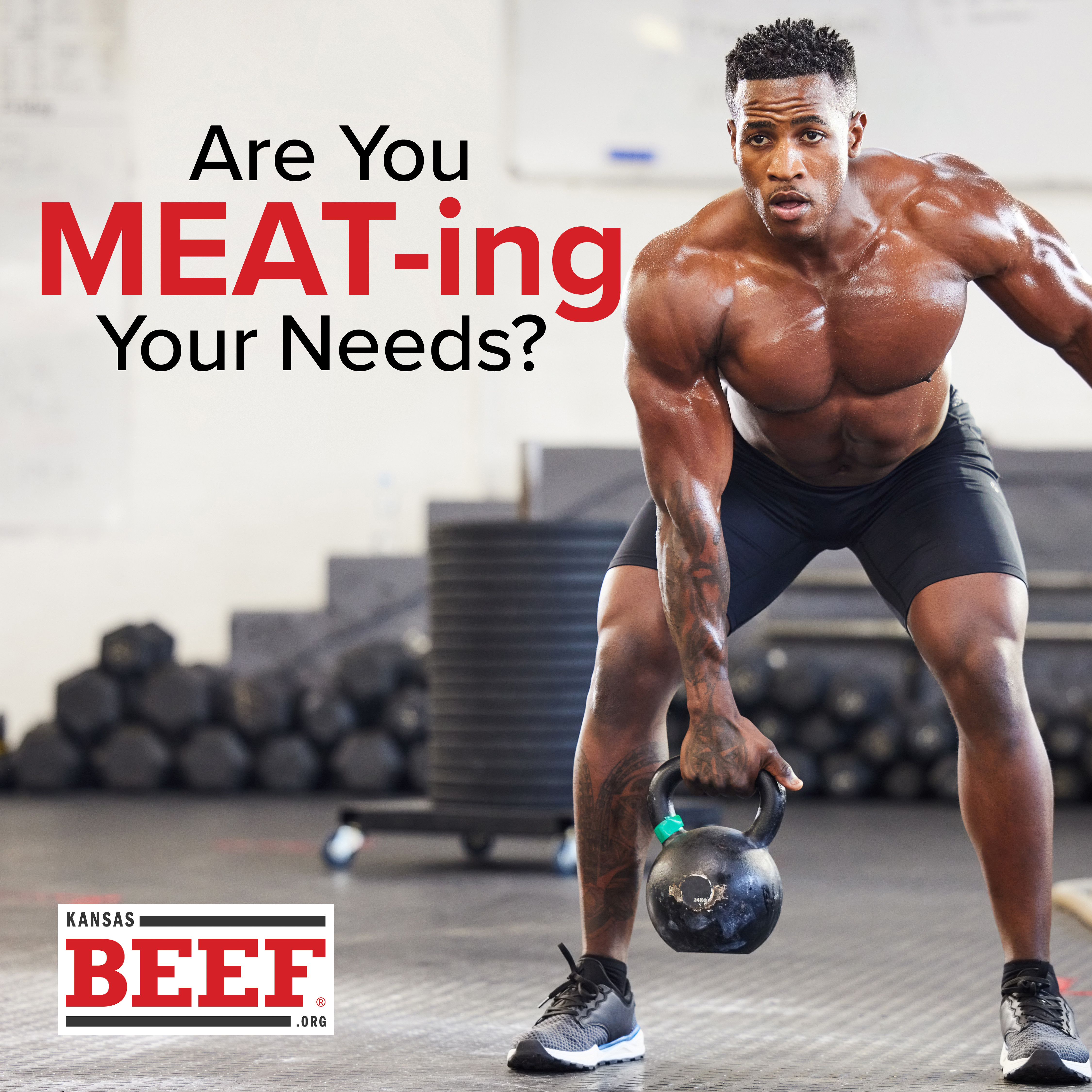
Get beef into the curriculum
When thinking about agriculture in the classroom, most people tend to envision agriculture-specific classes taught by high school FFA advisors. While these classes give students practical and hands-on experiences in agriculture, many schools either lack agriculture education programs or find that students do not enroll in these classes.
The Kansas Beef Council (KBC) has partnered with the Nebraska and Oklahoma beef councils to bring agriculture education into mainstream classrooms through a booklet series about various aspects of the beef industry.
There will be three readers in this series. These readers will provide scientifically accurate facts about beef production, information about different occupations in the cattle industry and QR codes that allow students to dig deeper into the content.
The readers mainly focus on different sustainability topics with the first covering greenhouse gas emissions, then the others will delve into nutrient up-cycling and the role of cattle in ecosystems. The readers have been designed for students in both middle and high school, targeting STEM classes and family & consumer sciences classes. The material was developed not only to inform students about cattle production, but also to encourage them to think critically about the complexities of various sustainability aspects.
“This reader series will help students who typically do not take agriculture-based classes make connections to the beef industry in a traditional classroom setting,” Abby Heidari, KBC Director of Nutrition, said. “The series will help students become critical observers and analytical thinkers as they uncover the interconnectedness of beef production and sustainability,”
Teachers interested in the beef readers can go to this link to find more information and download all assets of the first reader.
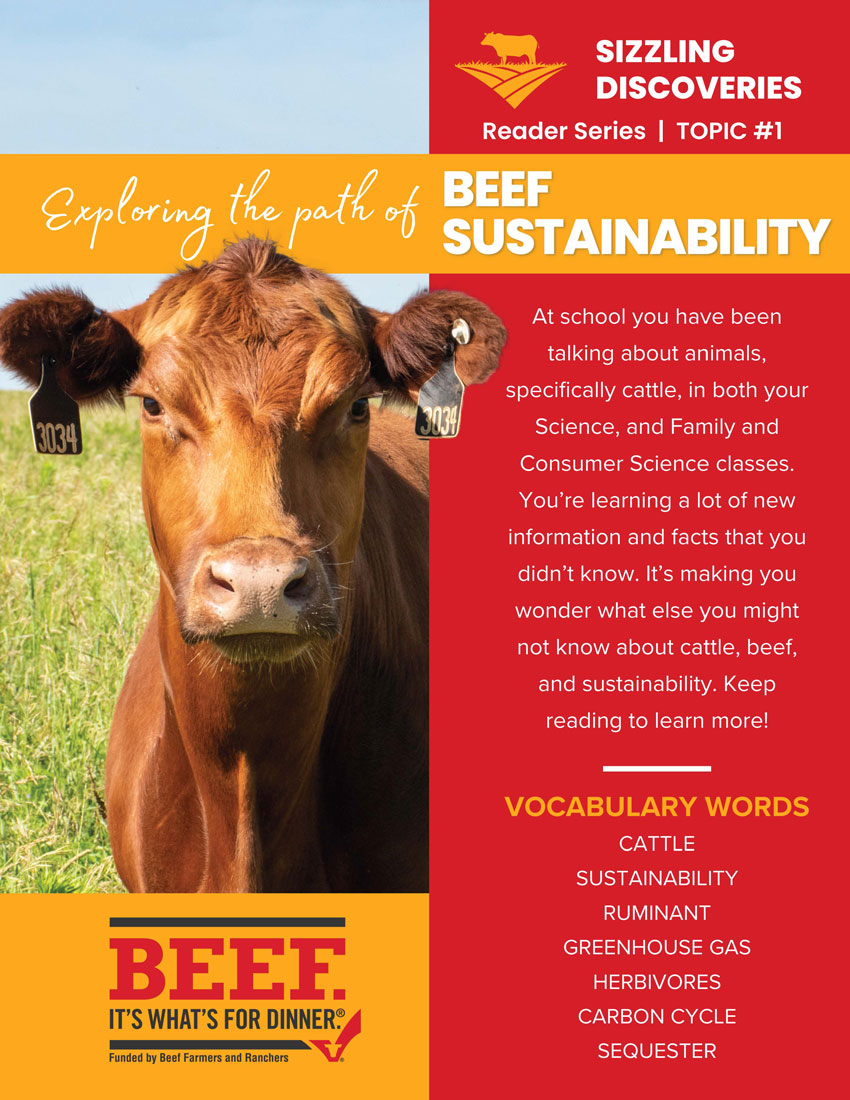
Building global beef demand
The Beef Checkoff’s primary function is to build beef demand. This can come through various functions, from beef recipe creation all the way to K-12 agricultural education curriculum.
However, one of the most successful ways the Beef Checkoff and the Kansas Beef Council (KBC) have helped build beef demand is by investing in international beef export markets. It is reported that 80% of global purchasing is located outside of the United States’ borders.
Export markets help move not only high-quality prime and choice cuts of beef, but also allow producers to add value to beef carcasses through value-added cuts like tongue and liver.
“Markets like Mexico and South America are willing to pay top dollar for cuts that you would have trouble giving away to the domestic consumer,” Ty Breeden, member of the KBC Executive Committee, said. “Exports help us gain more value from those cuts.”
The most notable way the Cattlemen’s Beef Board and KBC have helped invest in export markets is through working with the U.S. Meat Export Federation (USMEF). USMEF is a contractor of the Beef Checkoff.
In USMEF’s latest export report, the beef export value equated to over $400 per head of fed slaughter in July of 2023. From January 2023 to July 2023, the average export value was around $395. The Cattlemen’s Beef Board has reported that investing in export market leads to roughly a $24.45 return on investment.
Other notable highlights in the export market included: Mexico exports increasing 31% from the year before; beef exports to Africa increased 25% from last year; Honduras exports totaled 226 megatons (mt), which is up from 95 mt from a year ago.
Export markets allow other countries to experience the high-quality beef the American beef herd provides, create avenues for variety meats to be sold and utilized, and ultimately benefit producers by increasing the value of their herds.

E-commerce success
The Kansas Beef Council (KBC) is committed to using Beef Checkoff funds as efficiently and judiciously as possible to create beef demand. To that end, KBC tries to meet the consumer where they are through different targeting efforts.
Targeting allows KBC and other Checkoff contractors to place ads in front of specific audiences like people who have purchased beef before but have not in the last month. This helps beef stay top of mind to consumers who do not regularly reach for beef products on a normal night.
This past summer KBC partnered with the National Cattlemen’s Beef Association (NCBA), a contractor to the Beef Checkoff, to place Beef. It’s What’s for Dinner. targeted advertisements on grocery store's online e-commerce website and app.
Some of the targeted consumer audiences were those who have purchased beef before through the app and those who have looked at beef products in the last 90 days but never purchased.
Advertisements on the online retailer resulted in 3.5 million impressions with over 840,000 of those coming specifically from Kansas shoppers. This created an estimated $18 million in incremental sales nationwide. Of those sales, 16% of them were from new buyers or members who had not bought beef products in the past year.
In Kansas, the advertisements created a 21.8% sales lift, which led to an overall $114 return on ad spend (ROAS). ROAS is a way to measure how effective an ad is by comparing how much money was made versus how much was spent on those ads.
“After the success of last year’s e-commerce advertising campaign, we decided that we wanted to continue this partnership with NCBA,” Randall Debler, KBC Executive Committee chairman, said. “We are happy to see that, again this year, consumers are responding to our campaign efforts by buying more beef!”
Ribeye steaks, New York strip steaks and 90/10 ground beef were the top three beef products bought during the campaign.
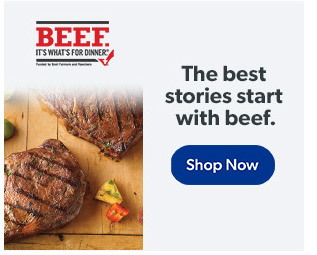
Bring on the K-state beef
Beef is a cornerstone of K-State football and tailgating tradition. Philly cheesesteaks, chilis and the classic hamburger are just a few of the dishes you find at Bill Snyder Stadium In the fall.
However, beef is not just a staple in the diet of K-State diehards, the offensive line also has made beef an integral part of preparing for a winning season.
K-State fans have been requesting the hats that were posted to social media earlier this year. The Kansas Beef Council and Wildcat NIL now officially have Kansas State Beef Offensive Line hats available for public purchase.
These hats not only are a reflection of Kansas State’s love of beef, but also a great way to give back to the community. For each hat sold, one pound of ground beef will be given to a local food bank. The remainder of the net proceeds will go to the offensive linemen through Wildcat NIL.
Food banks always are looking for fresh meat donations. Ground beef is a great way to meet that need that not only is easy to cook, but also nutritionally dense.
Over 600 hats already have been sold. Go to this webpage to find beef tailgate recipes that are always a fan favorite.
Purchase a hat through Wildcat NIL or at Rally House!
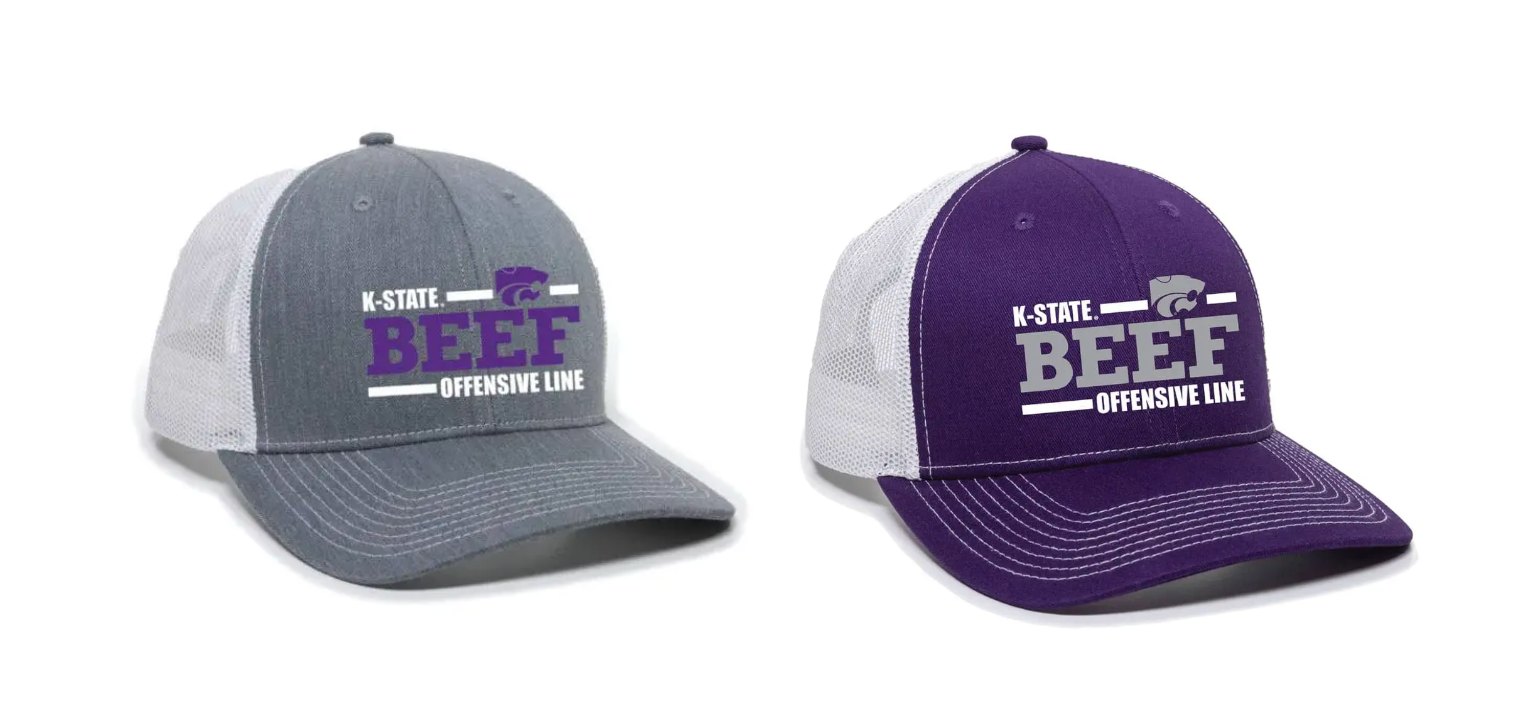
AHA-certified recipes update
When logging into different social media apps, one can be bombarded with various opinions on the same topic. This is extremely true about information regarding beef’s role in the diet. The Kansas Beef Council (KBC) diligently combats beef misinformation by working directly with health professionals.
At the beginning of the year, KBC distributed over 75 USB drives containing Checkoff-funded content and recipes on how to include beef in a lean, heart-healthy diet to various cardiac rehab facilities and health professional offices across the state. The recipes and corresponding content were created using Beef Checkoff-funded research, such as the Beef in an Optimal Lean Diet (BOLD) study.
Check out more Checkoff-funded research here!
Doctors, nurses and other health professionals are widely regarded as the most-trusted sources of nutrition information. That is why KBC is dedicated to cultivating relationships with these professionals by providing them with scientifically accurate and up-to-date human nutrition research.
“I work in a cardiac rehabilitation program where I assist patients in adopting heart-healthy eating habits, which includes guiding them to choose lean cuts of beef,” Cheryl Mussatto, a registered dietitian, said. “The AHA-certified beef recipe videos and resources have been valuable tools for educating participants in cardiac rehabilitation that they can still enjoy lean beef as part of a heart-healthy diet. Educating patients on choosing the healthier cuts of beef, healthy cooking techniques, and pairing it with whole grains, veggies, and fruit, has helped patients immensely in eating healthier and actually enjoying a heart-healthy way of eating.”
KBC collaborated with Beef. It’s What’s for Dinner. to expand the reach of this campaign. More than 16,000 recipe cards have been distributed to over 20 state beef councils.
Throughout the year, KBC and other beef councils have utilized this content to hand out at various nutrition and health conferences, such as the MO-KS Association of Cardiovascular and Pulmonary Rehabilitation Conference.
Check out the AHA-certified recipes here!
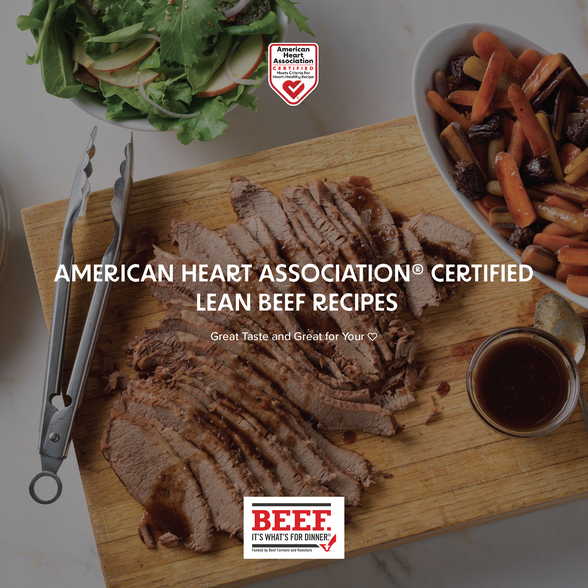
Tailgater of the game 2023
When it comes to the food served at tailgates, K-State Wildcat fans take “Eat Beef” very seriously. Beef brings more to tailgates, and no one knows that like the K-State family.
The Kansas Beef Council (KBC) looks to encourage beef at tailgates this year by sponsoring the “Tailgater of the Game” competition again.
“Everyone gets excited to tailgate and watch football,” says Jamie Lindamood, a member of the KBC executive committee. “When you add the unbelievable taste of beef to your tailgate, it makes those gatherings and memories just that much better.”
For each home game, starting with the September 2 game against Southeast Missouri State University, and through the November 11 game against Baylor, KBC staff and volunteers will be walking around the main tailgating areas. Any tailgate crew that is cooking up beef – whether it be hamburgers, steaks or something in between – will have a chance to win.
The weekly winner will be chosen at random and then featured during the game in a video played on the big screens. Weekly winners will win a prize of grilling gear and a gift card. Then all the weekly winners will be entered to win the grand prize of box seats at the last home game of the year against Iowa State.
“Beef is an integral part of tailgating – let alone K-State tailgating!” Scott Stebner, Executive Director of KBC, said. “The K-State family loves cooking beef and we are excited to provide an opportunity to celebrate the Kansas beef industry alongside K-State Athletics.”
Go to this link to see the success of last year’s Tailgater of the Game promotion!
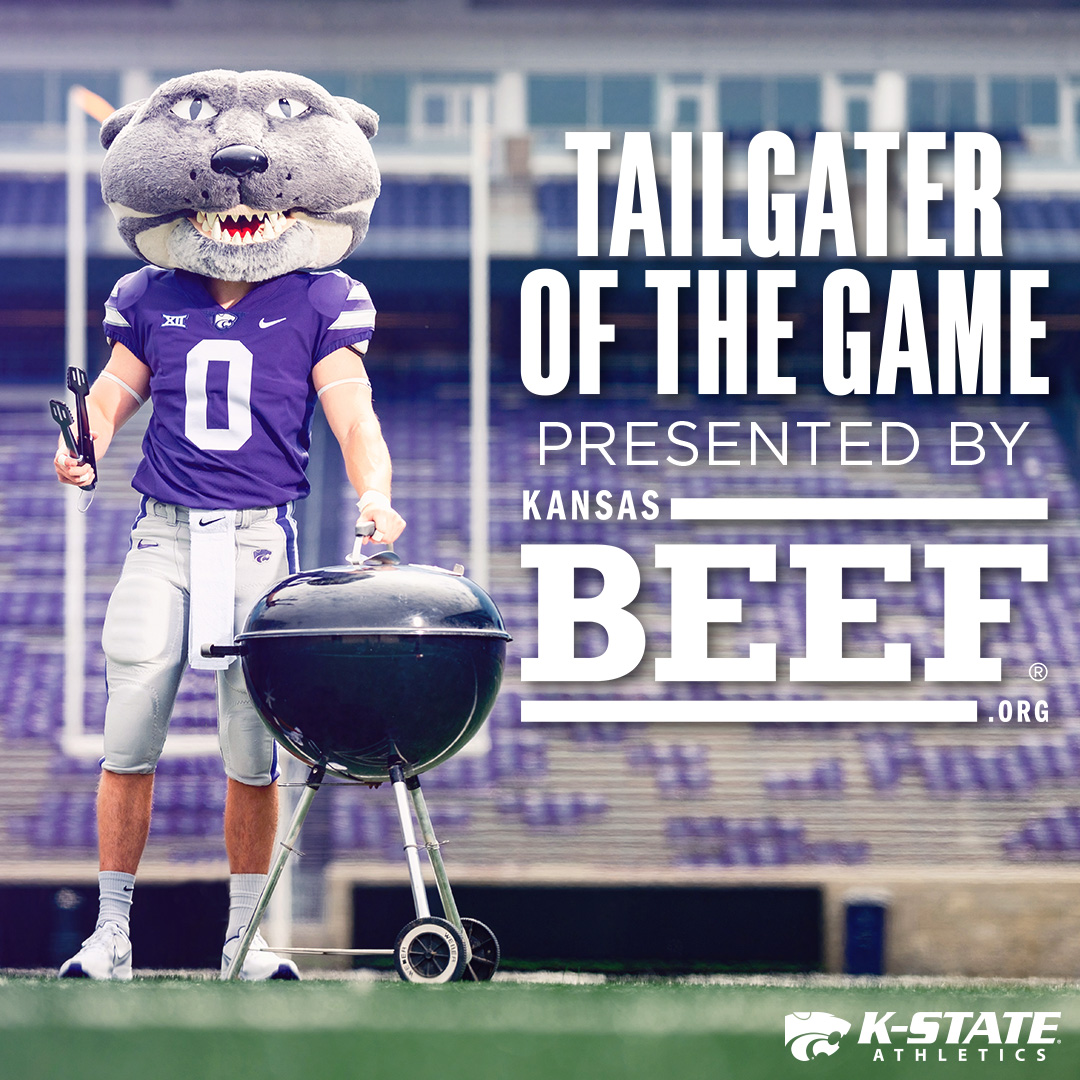
2023 Cattle Industry Business Meeting
Each July, volunteer leaders in the cattle industry from around the country come together to discuss upcoming projects and ongoing issues and connect with other producers.
Last week, Kansas Beef Council (KBC) executive committee members and staff traveled to San Diego to participate in the various Beef Checkoff committee meetings and training sessions held during the annual Cattle Industry Summer Business Meeting. The six programming committees met to receive updates from Checkoff contractors, set program priorities and discuss funding requests for the upcoming year.
Go to this link to learn about all Cattlemen’s Beef Board (CBB) program committees, and how they help build beef demand nationwide!
Funding research projects is one of many ways CBB builds beef demand. Checkoff-funded research helps build consumer trust in areas like product safety and nutrition. It also helps dispel any misconceptions about the beef industry by providing science-backed evidence and answers to popular questions and misinformation that circulates.
“Research is foundational to understanding beef’s role in a healthy diet and ensuring we have a role in the new dietary guidelines that are redone every five years and will be done again in 2025,” Philip Weltmer, co-chair of the Nutrition and Health Committee, said.
These committee meetings are where beef producers make informed decisions about how Checkoff funds are going to be used and ultimately promote beef in the upcoming year.
“Your Checkoff dollars is the only money that is going towards these kinds of efforts. So, be proud of what the money is doing, and rest assured that everything being done by the Beef Board is with the focus of using your dollar judiciously,” Amy Langvardt, CBB member, said.

Ks Cattle Reaching the empire state
Kansas is one of nine states where the cattle population is larger than the human population. Consequently, the general public in Kansas has an overall positive outlook on beef and the beef industry. This unique combination allows for the Kansas Beef Council (KBC) to partner with the Nebraska Beef Council and fund nutrition programming at the New York Beef Council (NYBC).
New York is a state with a high population but a low cattle inventory. Being home to one of the top-five most populous cities, it is extremely important to connect with health and nutrition professionals in New York to provide accurate and scientific information on beef.
One of the new programs NYBC helped sponsor was an “Intern Competency Workshop” for dietetic interns. This training included beef messaging to help equip attendees with the knowledge they need to address challenging questions about beef nutrition, thus enabling them to share accurate information with future clients and patients.
After the workshop, participants reported a significant increase in their knowledge about beef and expressed a greater likelihood of recommending beef more often to clients.
Additional outreach opportunities included sponsoring and attending the New York State Academy of Nutrition Dietetics Annual meeting. At this event, NYBC had a booth where they could engage with the health professionals about nutrition research, sustainability and promote “beef in the early years” content.
NYBC also collaborated with NCBA to promote the “Strong Minds, Strong Bodies” toolkit program. These toolkits, which discuss the benefits of consuming beef throughout all life stages, were sent to physicians and pediatricians throughout New York.
The practitioners who received the kits were asked to fill out a survey about their opinions and thoughts on current nutrition trends within the state. Only 54% of those who took the survey believed that the national school lunch program is balanced and helps children perform their best throughout the day. Additionally, 91% of the practitioners have recommended or intend to recommend beef for school-aged children due to the materials received.
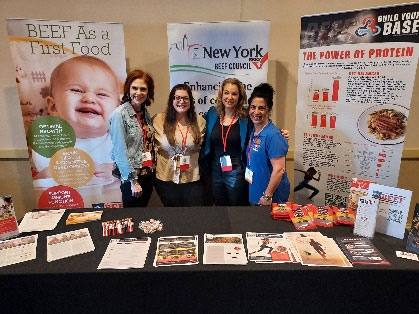
Teachin' about beef
Family and Consumer Sciences (FCS) classes in middle schools and high schools offer teenagers initial exposure to cooking skills and food handling techniques. These programs, while vital to developing the next generation, are often faced with limited resources and funds.
The Kansas Beef Council (KBC) for over the past three decades has funded the Beef Certificate Program (BCP) aims to introduce students to a wide range of beef products, along with valuable nutritional and production information.
This Beef Checkoff-funded program provides financial support to teachers who want to incorporate beef into their classroom instruction. The BCP also includes curriculum about beef production, food safety and explanations on the different labels beef may have in the grocery store.
In the 2022-2023 school year, 21,247 students from over 100 different schools around Kansas benefited from the BCP.
“We really appreciate partnering with the Kansas BeefCouncil,” one teacher says. “Our students benefit each year from the knowledge and experience they receive.” FCS programs are not the only programs that benefit from the BCP. ProStart is a Kansas program where high school students can receive real-world professional experience in the culinary industry. ProStart teachers can apply for the BCP to help future Kansas chefs learn more about beef and the beef industry.
While the lessons are designed for FCS classes and cooking labs, they also establish cross-curriculum ties, particularly with STEM curriculum. Lessons about beef production cover topics like carbon sequestration, beef sustainability and the beef life cycle.
Applications for the 2023-2024 school year are open. If you know a teacher that may qualify for the BCP or would like beef curriculums, have them head to this link!
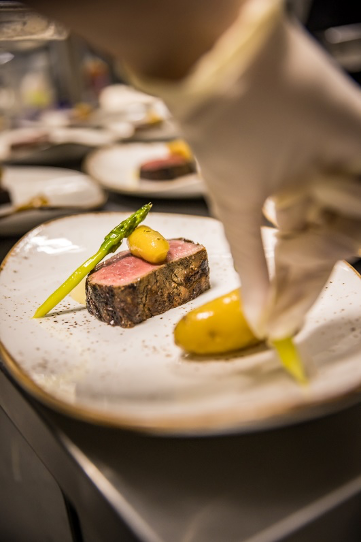
The Kansas Consumer
The Kansas Beef Council (KBC) is constantly trying to find the most effective ways to connect with Kansas consumers to ultimately build beef demand. That is why KBC funds a consumer-focused dashboard report for both Kansas and the Kansas City metro-area once a quarter.
These dashboards help KBC understand what consumers are looking for when it comes to protein selections and what would entice them to eat more beef.
One of the main findings of this quarter’s dashboard was that Kansans are eating more beef than the national average. It also showed that Kansans have an overall positive attitude toward beef.
Approximately 81% of Kansans eat beef at least once a week, and they are unlikely to change their beef consumption patterns in the future.
The top three considerations for Kansans when selecting protein for meals are taste, value and if their kids or family will enjoy eating it. However, Kansas City consumers also heavily consider what is a great source of protein when selecting from the meat case.
With those considerations, 79% of Kansans’ families already enjoy beef as a protein option. Most consumers indicated a way to encourage more beef consumption is through various healthy, quick and easy meal and recipe ideas.
Kansas City residents are also interested in different ideas on how to use ground beef and chef-inspired recipes.
One of the more interesting findings is that most Kansas and Kansas City-area residents use food recipe websites. This past year KansasBeef.org received more than 1.3 million visits.
Other findings include 60% of Kansans are actively using different grocery shopping apps. Also, ground beef is the most commonly purchased cut online, with steak being the second most popular.
“These dashboards help us keep a pulse on what Kansans want out of their protein options,” Scott Stebner, KBC executive director, says. “We want to make judicious use of our time and resources, and these dashboards help us focus our efforts to make sure we are actually addressing the areas in which we can help build beef demand in Kansas.”

Online Grocery Store Promotion
Online shopping is no new phenomenon. People are slowly transitioning from walking into brick-and-mortar stores to browsing web pages, and trading in old shopping carts for digital ones. This is especially seen in consumer grocery buying, where the percentage of consumers purchasing groceries online is rising steadily.
Last year, the Kansas Beef Council (KBC) and NCBA, a contractor to the Beef Checkoff, partnered to place ads on Walmart’s website to promote beef during grilling season.
To make sure that beef stays front of mind for consumers this summer, KBC and multiple other states again partnered with NCBA on a summer grilling e-commerce campaign.
Advertisements were placed on Sam’s Club’s website and app on May 1 and will run until June 30.
In addition to the Sam’s Club summer grilling campaign, beef promotions also will be seen on Wal-Mart’s website. These ads will run throughout the grilling and back-to-school seasons.
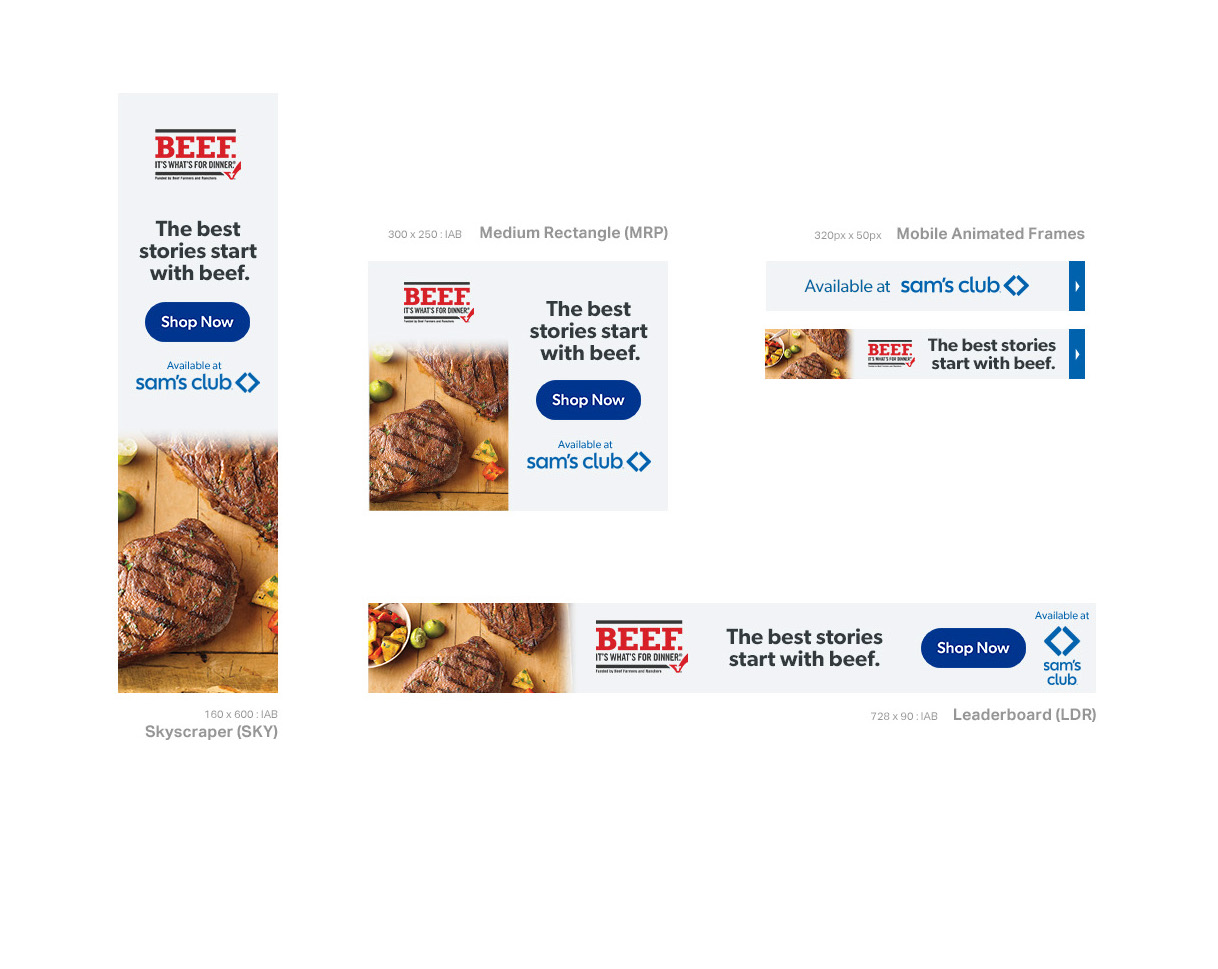
Nutrition Adventure 2023
Nutrition Adventure aims to clear beef industry misconceptions, connect dietitians with producers and provide applicable science and skills to dietitians nationwide. This three-day Beef Checkoff-funded program, which was held May 23-25, is co-hosted by the Kansas, Nebraska, Oklahoma and Missouri state beef councils.
Dietitians spanning from California to New York to Florida to Nebraska came to Kansas City for programming centered on beef, food inclusivity and food styling. Attendees were diverse in their specialties, ranging from university dining services to social media influencers.
Kansas Beef Council’s Abby Heidari, Nebraska Beef Council’s Mitch Rippe and Oklahoma Beef Council’s Sheri Glazier gave a presentation on “What is Cool about Beef?” on the first day. This presentation was a crash course on the cattle industry and beef. Topics covered included beef nutrition, the meaning of various labels on beef products and the different beef cuts available. The day concluded with a “Chopped”-style culinary competition, where participants made meals featuring skirt and flank steaks.
Day two focused on connecting attendees with the beef industry directly. Participants started the day with a presentation about beef sustainability by Dr. Tryon Wickersham, a ruminant nutritionist and professor at Texas A&M University. Then, local beef producers from Leavenworth County joined the group for lunch before heading to Tailgate Ranch.
At Tailgate Ranch, Kirk Sours led a farm tour sharing the history of the land, current management practices and how drought has affected his operation. Afterward, a panel consisting of Shawn Tiffany, COO of Tiffany Cattle Co.; Dr. Angie Siemens, Vice President of Food Safety, Quality and Regulatory at Cargill; Dr. Dan Thomson, Veterinary Professor at Iowa State University; and Kirk Sours, cow-calf producer and owner of Tailgate Ranch sat down to have an open conversation with participants.
This panel was open to all questions from attendees. Topics included an explanation of how beef is processed, the panel’s thoughts on alternative meat products and family involvement in the operation.
On the post-event survey, one participant noted they were comfortable recommending beef because they got to see first-hand how passionate producers and those in the beef industry were about raising cattle.
“I know colleagues when I get back are going to ask ‘is [large scale cattle production] really sustainable’, and the answer is yes,” Breana Killeen, a participant from Vermont, said. “It was unbiased, with a lot of different perspectives, and they told us the truth.”
Participants at the end reported feeling more comfortable with and knowledgeable about cattle management practices and beef nutrition.
To cap off Nutrition Adventure, attendees headed to Kauffmann Stadium for a food styling workshop with Jenn Davis. After the event, state beef council staff stayed to get a more in-depth lesson on styling burgers and steaks in hopes of improving consumer-focused efforts.
“What I really enjoyed about his event was that there were so many hands-on opportunities,” Elise Compston, a participant from Alabama, said. “It was so informative and really went above and beyond other conferences that we as dietitians go to.”
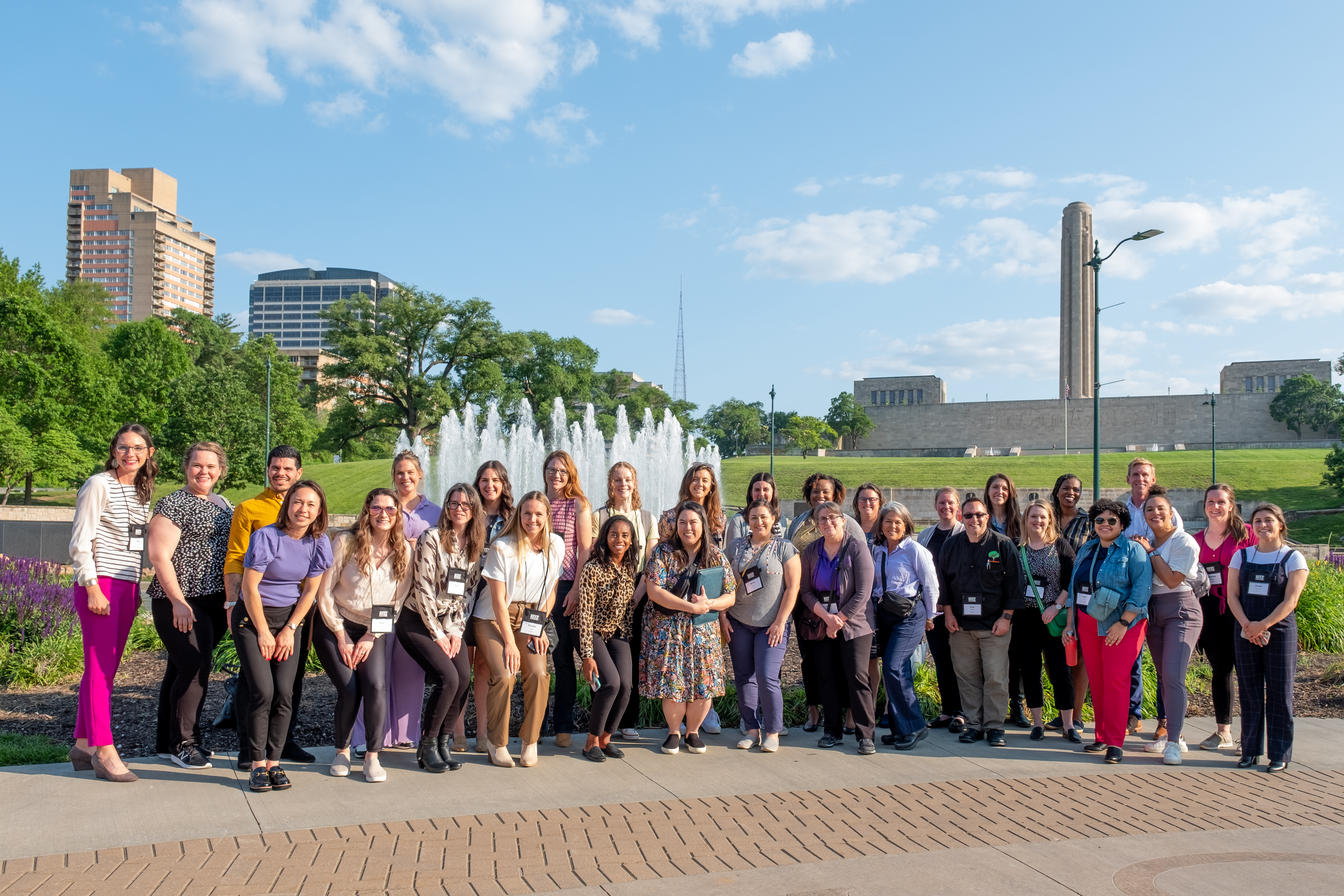
Spring Health Professional Networking
Health and nutrition professionals and experts are the most trusted source of information to the general population. Whether it be a dietitian or a nurse at a cardiovascular rehabilitation center, consumers trust these professionals.
This is why the Kansas Beef Council (KBC) has made efforts to engage and connect with health professionals through the Missouri-Kansas Association of Cardiovascular and Pulmonary Rehabilitation Conference (MOKSACVPR) and the annual Kansas Nutrition Council (KNC) Conference.
At the KNC conference, KBC hosted a Beef Checkoff-sponsored session titled “Sustainable Nutrition Meets Sustainable Agriculture: What Do Health Professionals Need to Know?” by Sheri Glazier. Glazier is an Oklahoma farmer and registered dietitian. She uses her background in both agriculture and nutrition to bridge the gaps between the two audiences through her business, Dirt Road Dietitian.
The session aimed to educate approximately 75 attendees about sustainability within the cattle and beef industry. Throughout the conference, KBC provided American Heart Association (AHA)-certified recipes and other information about the beef industry to participants.
MOKSACVPR was an opportunity for Patti Dollarhide, KBC nutrition program consultant, to share with heart health professionals how lean beef can fit into their patients’ lives.
Many cardiac rehab patients fit into the demographic of 45-plus-year-olds who consume beef on a regular basis. The AHA-certified recipes and other resources on lean beef were provided at a Beef Checkoff-funded booth hosted by KBC.
“Conference attendees were impressed with the resources that the Kansas Beef Council had to offer, especially the Beef. It’s What’s for Dinner. American Heart Association® certified recipe videos,” Dollarhide said.
Outreach efforts like these are part of the Beef Checkoff’s broader nutrition program to connect health professionals with easy-to-refer patient resources and show consumers that they can continue to love the taste, the nostalgia, and the experience of lean beef within a heart-healthy diet and lifestyle.
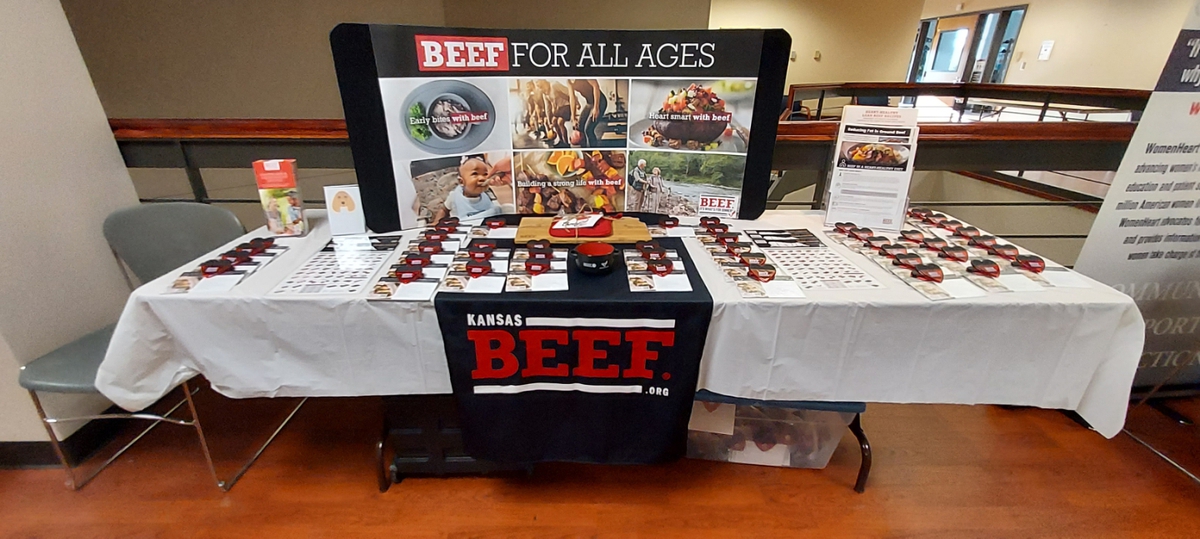
Kansas Beef Month
YSA
The Kansas Livestock Association (KLA) each year brings together 20 young producers for their Young Stockman Academy (YSA) program.
This past week, the 2023 YSA class made their way to the Kansas City area. While there, Scott Stebner, KBC executive director, presented on consumer preferences and beef demand.
Stebner shared that when consumers think of beef, they think of a great-tasting product. He also highlighted that alternative proteins represent a very small portion of total protein sales. In fact, beef substitutes represent just 0.3% of the total dollars spent when compared to all animal proteins.
The information provided came from Beef Checkoff-funded dashboards that were built from surveys consumers in the Kansas City area and across Kansas completed. These dashboards, along with other consumer research, help KBC focus efforts on topics that resonate the most with consumers. The dashboards also provide information on the current preferences, food trends and demand drivers of Kansas consumers.
Beef Proclamation
Last Wednesday, Gov. Laura Kelly signed the official Beef Month Proclamation. Randall Debler, KBC chairman, and Jake Pannbacker, vice chairman, attended the signing at Cross Country Genetics.
“Beef is important and integral to the Kansas economy,” Debler says. “Our state is better off because of all the hard work cattle farmers and ranchers do day in and day out. I’m happy to see that recognized during Beef Month.”
Strava
KBC has partnered with Pit Boss Grills to host a Strava-art challenge. In this challenge, anyone in the Kansas or Kansas City area that creates a cow through their GPS data has the chance to win a Pit Boss griddle.
Strava is a social media app that allows fitness and health enthusiasts to share their workouts. If your workout happened outside, the app shares your route and other information.
This competition helps beef lovers to share how their runs and workouts are fueled by beef. The endurance running and biking communities tend to stay away from beef due to misconceptions about nutrition and animal welfare.
Cattle Care
Throughout May, KBC released videos and graphics talking about the people behind the scenes at feedlots. This includes veterinarians, pen riders and others. This is in an effort to share about what feed yards are like and correct misconceptions.
The videos can be seen across social media and connected TV.
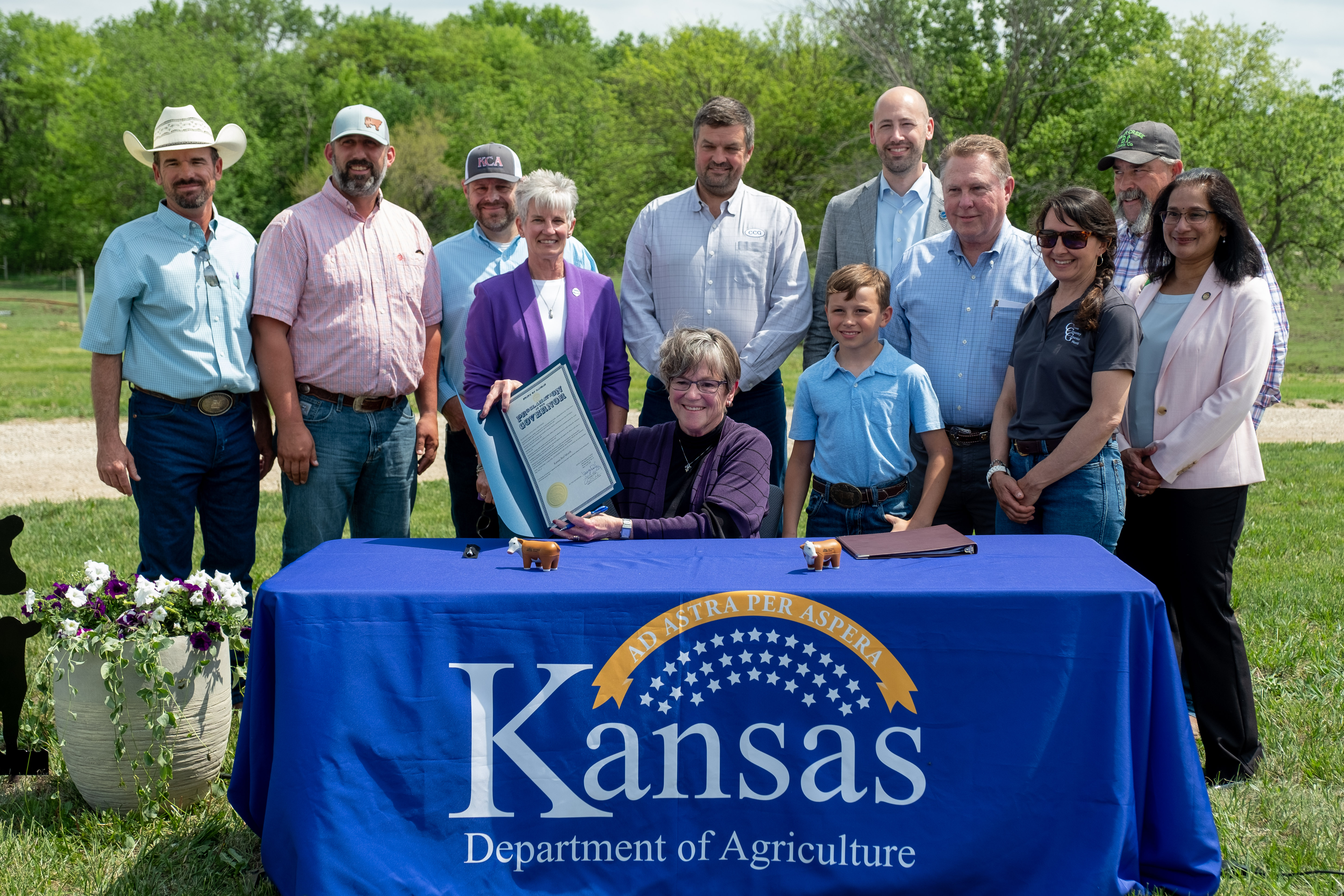
KS in Cali
The California Beef Council (CBC) recently held a “Shed NewLight on Flavor” workshop for attendees of the Academy of Nutrition and Dietetics Food & Culinary Professionals conference in the Napa area of California. This event was a blindfolded tasting of three different beef-forward dishes. The Beef Checkoff-funded event was in partnership with the National Cattlemen’s Beef Association (NCBA), the Nebraska Beef Council (NBC) and Kansas Beef Council (KBC).
Fifty registered dietitians attended and tried a beef, bean and mushroom slider, a salad with beef strips, a beef and veggie wrap and a fajita-style beef taco. Hoby Wedler, a chemist and sensory expert, led the group through the activity. Wedler has been blind from birth, so he has personal experience of the impact of taking sight away from the eating experience.
Wedler then led them in a still-blindfolded discussion of what they were tasting, what those flavors meant to the dish, how the flavors and textures made them perceive each dish, and what employing their other senses meant to their enjoyment and understanding of the different foods they were eating.
"These pre-event workshops are a way for nutrition and dietetics professionals to add an enrichment component to their conference experience," said Kori Dover, RD, Director of Food & Nutrition Outreach for CBC.
In addition to the pre-event workshop, Dover, along with meat scientist Dr. Phil Bass, provided a conference keynote session called "Raising the Steaks-Exploring Beef’s Versatility." This lively, interactive session provided attendees with practical ways to get the most value from various beef cuts, included cookery tips, looked at flavor profiles and provided insights into beef’s role in healthy and sustainable diets.
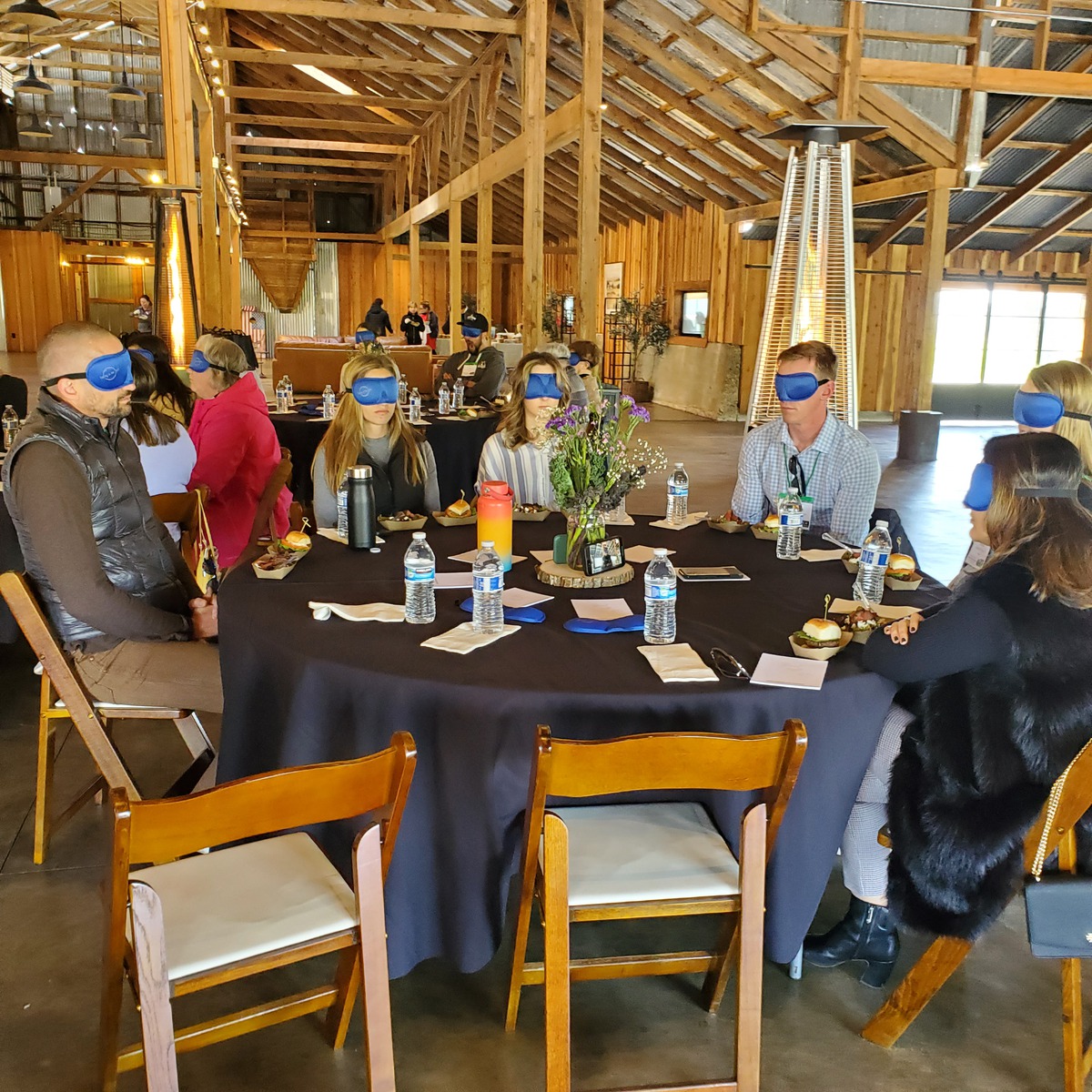
Michigan Association for Healthcare Foodservice - “Social and Environmental Impact Initiatives.”
Interest in the topic of sustainability has grown in onsite foodservice. Related industries are now looking at options that include metrics about food waste, energy consumption and the environmental footprint of their food purchases when selecting which foods to purchase and distribute.
Recently Patti Dollarhide, program consultant for the Kansas Beef Council (KBC), provided a presentation for 60 leaders and administrators of various Michigan healthcare and university systems explaining how beef can fit into a sustainable food system.
The session focused on the nutritional strength that beef brings to the menu while being part of the solution to environmental challenges. Beef Checkoff-funded sessions like these are designed to provide accurate, peer-reviewed information about beef to foodservice professionals who make purchasing decisions and plan menus for large hospitals and retirement living facilities, as well as university dining services throughout the U.S.
By attending these conferences and events, Checkoff-funded research is able to be shared with those who are skeptical towards beef products. Educating foodservice providers on the science behind beef and the beef industry, create consumer trust and beef demand.
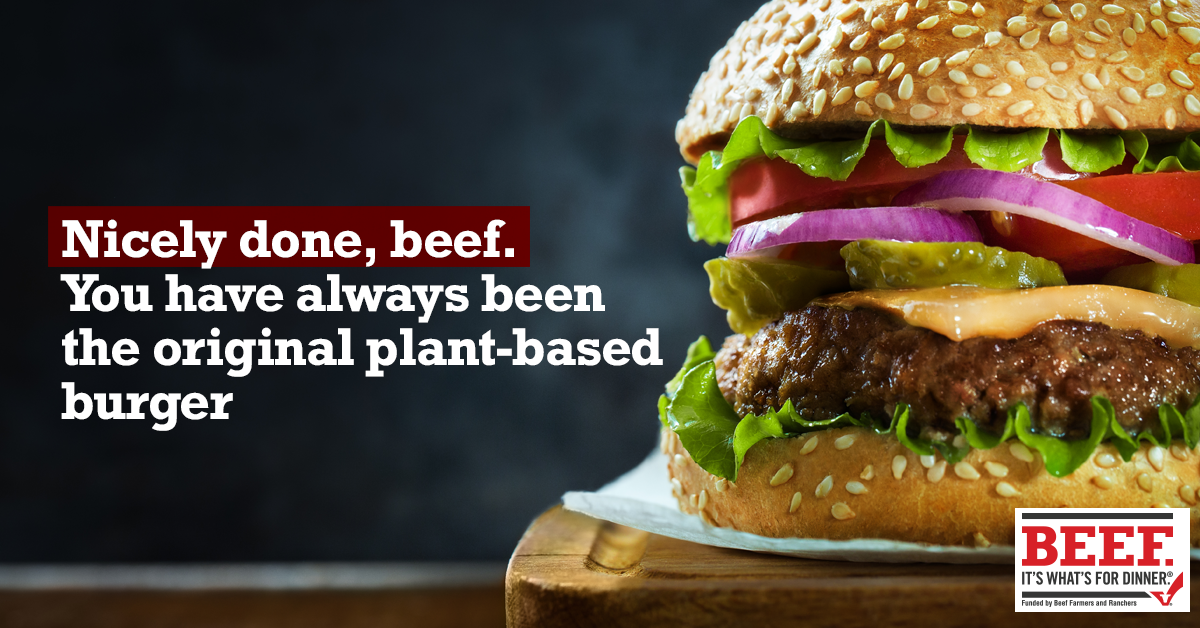
Meeting with Future Dietitians
Healthcare professionals are a trusted source for nutrition information, yet they typically do not receive education on how food is raised and grown. This gap in understanding can cause distrust in modern agricultural practices.
Educational presentations to future health professionals like dietetic interns bridge the gap between classroom lessons and questions about food production that they will face when educating future patients and clients. When healthcare professionals are exposed to accurate information about beef production and nutrition, they are more likely to recommend beef to their patients.
Recently, Abby Heidari, director of nutrition for the Kansas Beef Council (KBC) provided a virtual presentation to Northwest Missouri State University dietetic interns. The session showcased the role dietitians can play working in agricultural communications and the importance of health professionals seeking out continuing education opportunities that provide science-based information about food production and processing. The session dispelled common myths about beef nutrition and increased the attendees’ knowledge about the beef life cycle and beef production.
Checkoff-funded sessions like this are designed to provide accurate, peer-reviewed information about beef to aspiring professionals who will reach thousands of consumers and clients with dietary advice during their careers.
KBC prioritizes meeting with future health professionals so they begin their careers knowing the importance of understanding meat and food production. Many of their clients will have questions about labels on food, so KBC wants to help them be prepared to address those.

Beef Promoted Across the Board
In 2020, it was reported that nearly 80% of 18- to 29-year-olds use at least one social media site daily, with YouTube and Facebook being the most popular among all adults.
This is beneficial for the beef industry, as these platforms and social media can be the easiest and most effective way to share tasty recipes, cooking tips and beef nutrition information. When consumers have easy access to information about beef, they are more likely to buy it.
With this in mind, the Kansas Beef Council (KBC) plans, creates and distributes social content that is adaptable to every social platform and algorithm. When it comes to promoting beef online, the ability to post on every platform on a regular basis can go a long way.
The videos KBC produces can then be formatted to fit the different preferences of each platform. For example, YouTube is now recommending and promoting YouTube Shorts over traditional long-form videos. This helps KBC content be seen by a larger audience.
In February, KBC staff filmed various videos for all their social accounts. The content included a video featuring a recipe for corned beef tacos, two videos about how beef can elevate the nutrition of popular vegetable-forward meals and a video on how to make dinner and dessert under 500 calories with beef.
The stout-braised corned beef tacos with fiery cabbage slaw video came from a recipe developed by the Texas Beef Council. With St. Patrick’s Day coming up, this video is timely for consumers.
Collaboration and the sharing of content between state beef councils make it possible to continually connect with consumer audiences on social media platforms without having to create, edit and post content individually.
The corned beef tacos video already has been seen more than a quarter of a million times since posting.
Check out KBC social media platforms to view the content produced and follow along to see how KBC is reaching consumers!
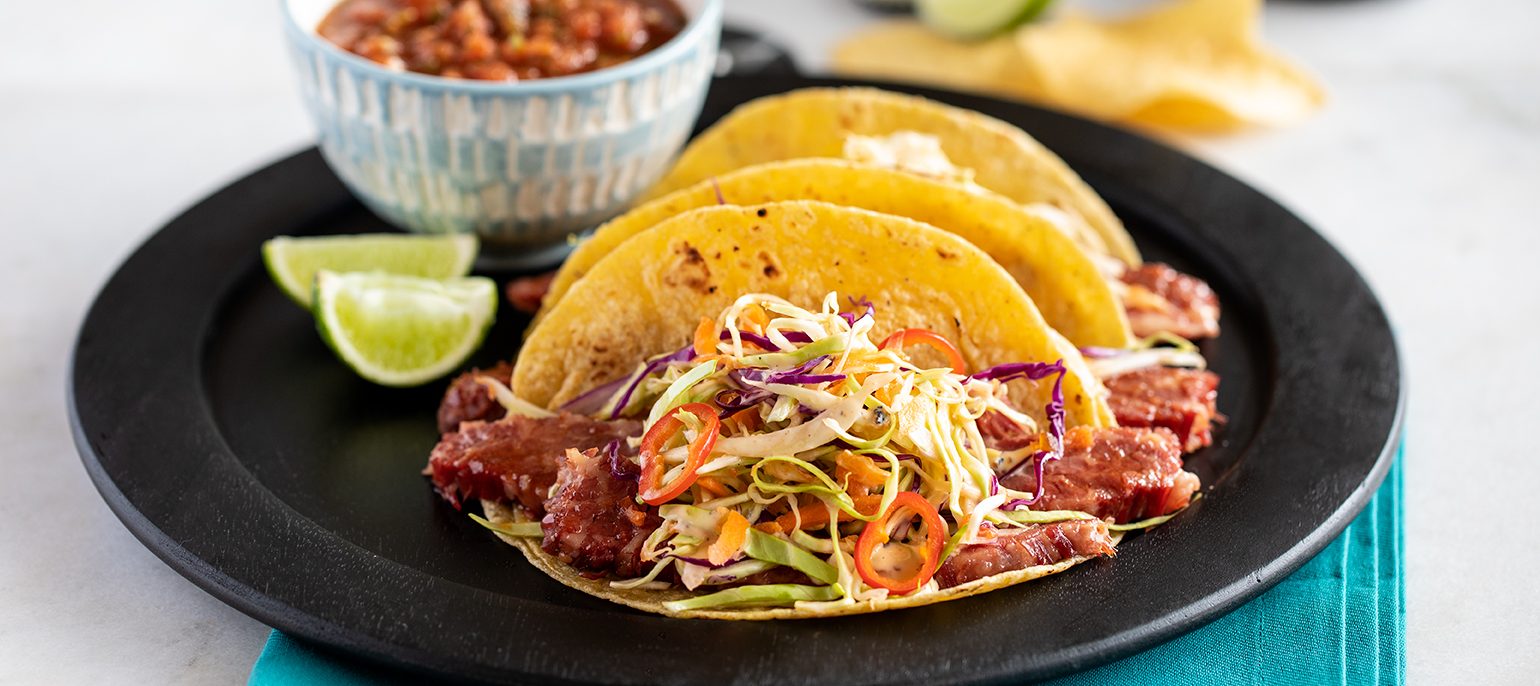
Promoting Beef in a digital world
In 2004, a Harvard University student started a social networking website that eventually would change how most people spend their time. Updating, scrolling and liking became a way of life, ultimately, altering how the average person sees and interacts with sponsored content and advertisements.Skip forward 17 years and social media and streaming services have entirely changed the way consumers view media content. In fact, a 2021 Pew Research Center study reported only 56% of households watch TV through cable or satellite services, which is over 20% less than in 2015 and remains on the decline. Around half of people 30 years old and younger cut the cord between 2015 and 2021. This shift to streaming services is mainly due to more content being accessible at any given time on these digital platforms compared to traditional television.
With this increased use of streaming services and smart TVs, the Kansas Beef Council (KBC) has shifted their focus to advertising on these platforms versus traditional television.
The change has allowed KBC to target specific demographics, like young families in the Johnson County, Kansas area, for example. This helps ensure beef is being promoted to areas with the least amount of access to beef operations but the highest population densities in Kansas.
Streaming services that Checkoff-funded advertisements can be seen on are ESPN, Roku and even Disney+. KBC ads have been viewed millions of times over the past few years.
YouTube also is one of the largest streaming services for those looking for a variety of content, and it is the second most popular search engine, as well. This is why KBC has placed a variety of ads about nutrition and general beef promotion on the website. The ads have generated almost 1 million views on the platform.
In addition to YouTube, KBC uses this system of targeted advertisements on popular social media platforms like Instagram, Pinterest and TikTok. These ads can help consumers be directly led to recipes, cooking tips and direct-to-consumer Kansas beef retailers. They also help KBC to connect and share information about beef to the younger generations like Gen Z.
While it seems most people are willing to pay for premium music subscriptions, KBC takes advantage that not everyone does. KBC regularly places ads on Spotify, which has resulted in 500,000 listens.
All these promotion and education efforts have helped drive more than 1 million page views for KansasBeef.org in 2022.

KBC-funded research
The beef industry has a vast supply chain, with many families, organizations and companies involved. Despite all the moving parts needed to deliver one serving of beef to the table, the American beef supply chain is one of the most efficient systems in the world.
This efficiency did not happen overnight, however, it was developed over time by those committed to the betterment of the beef community as a whole.
Since the creation of the Beef Promotion and Research Act & Order, the Checkoff has been committed to funding peer-reviewed research. This commitment comes from the understanding that research in the beef industry ultimately will produce a better product and a larger demand for beef.
Research is important to building beef demand because it helps the industry understand consumer trends and buying habits and aids in creating trust among consumers. Health professionals also are able to recommend diets and meals that include beef when there is scientific research backing beef nutrition.
While Kansas always has funded research through the national Checkoff, the Kansas Beef Council (KBC) executive committee recently has allocated funds to directly support research that will impact both Kansas and the nation.
KBC-funded research projects have covered topics from carcass shrinkage to consumer perceptions of sustainability topics.
Nationally, Checkoff-funded projects that recently have received a lot of attention are the Beef in an Optimal Lean Diet study by Penn State University and a study conducted by Purdue University on the popular Mediterranean diet.
KBC continues to look for and fund research that will increase beef demand and result in the betterment of the beef industry.
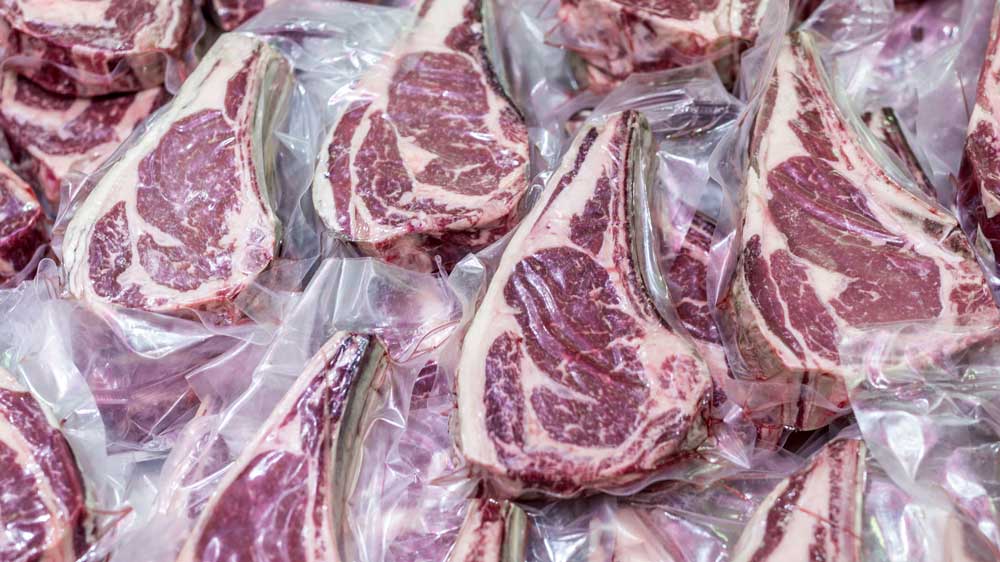
KC Health Professional Freezer Meal Class
Many health professionals may not receive robust training in nutrition. If they do, they often do not learn about the nutrition benefits of single-ingredient foods like beef.
Continuing education opportunities for health professionals hosted by the Kansas Beef Council (KBC) help fill gaps in nutrition knowledge on beef’s unique nutrient profile and the role beef plays in a balanced diet and healthy lifestyle.
Recently, KBC hosted a lean beef freezer meal prep class for 16 nurses, dietitians and physical therapists in Lenexa, Kansas. During this Checkoff-funded continuing education opportunity, Abby Heidari, director of nutrition for KBC, educated attendees on beef nutrition and production research while showcasing the variety of lean beef cuts used in freezer meal recipes.
With February being American Heart Month, the class focused on lean beef cut selection, preparation and safe food storage techniques while showcasing American Heart Association® certified Beef. It’s What’s for Dinner. recipes and patient resources.
Outreach efforts like this are within the KBC’s larger nutrition campaign showcasing the positive role beef plays in a heart-healthy diet and lifestyle.
kbc at the 2023 ncba convention
The first week in February had cattle producers and beef industry professionals across the country coming together in New Orleans for the 2023 Cattle Industry Convention. Kansas beef producers and Beef Council Executive Committee members were in attendance to receive updates on the Cattlemen Beef Board (CBB) Checkoff committees they sit on and offer their feedback. Members present included:
- Jaret Moyer on the Consumer Trust Committee Trista Priest Brown and Jake Pannbacker on the Domestic Marketing Committee
- Tracy Thomas, Barb Downey, Larry Kendig and Byron Lehman on the International Marketing Committee
- Amy Langvardt, Stacey McClintock and Philip Wheltmer on the Nutrition and Health Committee
- Evan Lesser, Ty Breeden and Randall Debler on the Safety & Product Innovation Committee
- Philip Perry and Josh Mueller on the Stakeholder Engagement Committee
These committees help select potential projects to fund to help advise the Beef Promotion Operating Committee (BPOC).
The Beef Promotion Operating Committee includes 10 producers elected by the Cattlemen’s Beef Board and 10 producers elected by the Federation of State Beef Councils. The BPOC decides how the National Checkoff collection funds will be invested to promote beef demand. BPOC works with eligible contractors to implement Beef Checkoff programs that range from research projects, promotions, consumer information, foreign marketing, industry information and producer communications.
Barb Downey, KBC executive committee member, was selected to join the BPOC after a competitive application and interview process.
The goal of the committee meetings was to provide updates on Authorization Requests presented at the 2022 Summer Meeting that took place in July.
Updates included how the U.S. Meat Export Federation (USMEF) was using Checkoff funding to help promote variety meats in major export markets like Japan, Korea and China.
These international marketing efforts have greatly driven demand for U.S. beef – specifically for cuts not typically eaten in the U.S. like tongue and liver – around the world. In 2022, USMEF reports that the beef export value equated to $447.58/ head which is a record high.
Other Authorization Requests included the American Farm Bureau Farm Foundation for Agriculture which helps provide urban teachers with agriculture education materials and experiences.
Additionally, the Northeast Beef Promotion Initiative, a sub-contractor of the Beef Checkoff, promotes beef in major urban areas like New York City and Boston. In total, their region comprises over 73 million consumers. This area is critical to support due to the high population of people and low population of cattle. This past year, the initiative partnered with Seton Hall athletics to promote beef during basketball games and work with the student-athletes at the college.
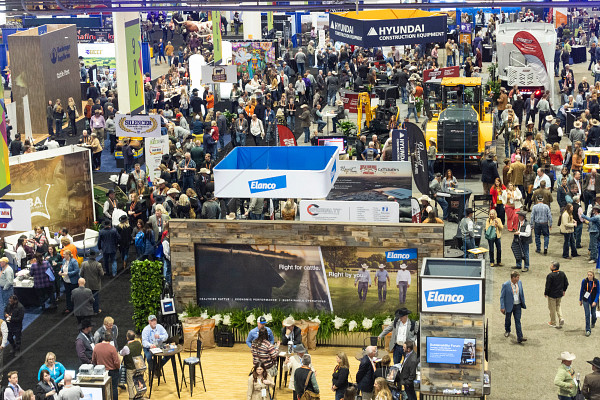
Heart health Research
February is American Heart Month. According to the Centers for Disease Control and Prevention (CDC), over 20 million Americans suffer from coronary artery disease.
With that, there can be various opinions and thoughts on how to formulate the perfect heart-healthy diet. Before the Beef Checkoff made any claims of their own, they started investing in scientific research.
“The Beef Checkoff has invested in nutrition research to understand the role lean beef plays in heart health since the 1980s,” Shalene McNeill, Executive Director, Nutrition Science, Health & Wellness for the National Cattlemen’s Beef Association, a contractor to the Beef Checkoff, says.
Most of the research is centered on the fat content of beef and if it affects heart health risk factors such as cholesterol levels.
It has been continuously shown that lean beef included in a healthy diet can lower total and LDL cholesterol levels.
Research is important because it helps give the Beef Checkoff a voice and credit among consumers and health professionals alike.
This research has also provided opportunities for the Checkoff to work with the American Heart Association® (AHA) to formulate AHA-certified recipes. Recipes and educational resources help show consumers how to prepare and enjoy lean beef with heart health in mind.
Throughout this month, KBC will be sharing recipes and information on lean beef’s role in a heart-healthy diet and lifestyle with both health professionals and the general public.
Read more information and research about lean beef in a heart-healthy diet here!
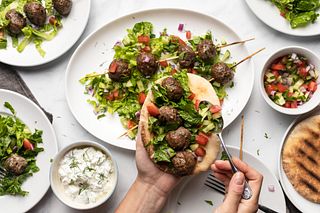
Be kind to your heart. Eat lean beef.
One of the largest misconceptions about a heart-healthy diet is that beef must be eliminated. However, Penn State University researchers published the Checkoff-funded study Beef in an Optimal Lean Diet (BOLD). This important study supports the claim that lean beef can be included in a heart-healthy diet. Beef and heart health can go hand-in-hand.
Cooked fresh meat is considered lean when it contains less than 10 grams of total fat, 4.5 grams or less of saturated fat and less than 95 mg of cholesterol per 100 grams (3 ½ oz) and per RACC (reference amount customarily consumed), which is 85 grams (3 oz). Over 60% of all beef whole muscle cuts at retail are considered lean.
Cuts with “loin” or “round” in the cut name is a way to ensure it is lean beef. Some of the top lean beef options are top sirloin steak, strip steak and 93% lean ground beef.
To promote and educate about lean beef’s potential role in a heart-healthy diet, the Kansas Beef Council (KBC) created a Checkoff-funded campaign that features 12 American Heart Association® certified lean beef recipes.
The main component of this campaign is providing cardiac rehabilitation centers, dietitians and various health professionals around Kansas and the Kansas City metro area USB drives containing those recipes and videos about them. Other information about lean beef in a heart-healthy diet is provided for health professionals and patients alike.
“Health professionals are highly trusted by their patients. So, this campaign not only brings about recognition of peer-reviewed beef research and lean beef in diets, but also fosters positive relationships between the Checkoff and the health professional community,” Stacey McClintock, National Nutrition and Health Committee member, says.
Additionally, an article written by Cheryl Mussatto, registered dietitian and author, about the benefits of lean beef has been published on different social channels including LinkedIn. The article also highlights what lean meat is and the different lean cuts of beef.
KBC also created different social media assets that will be shared across all platforms. This includes assets such as graphics for Pinterest to 15-second videos for YouTube ads. KBC already has started sharing information about the recipes over social channels, but they will promote them primarily in February - which is American Heart Month.
“It is vital for the Beef Checkoff to share factual, science-based research demonstrating beef can be part of a healthy and active lifestyle,” Scott Stebner, interim director of KBC, says. “Checkoff-funded efforts like this are an integral part to positively impacting beef demand through research, education, and promotion.”
The campaign includes social media assets and Beef. It’s What’s for Dinner. branding so other state beef councils can promote and distribute the resources within their own states. Beef councils across the country have started ordering physical copies of the recipe cards. Over 16,000+ cards already have been ordered.

2022
6,000 Miles of Kansas Beef
Team Beef Kansas endurance team is a Checkoff-funded endurance running and biking team with over 400 members.
Over the course of 2022, Team Beef Kansas participated in 405 races totaling over 6,046 miles covered. The half-marathon was the most popular for the year, with the 13.1-mile distance covered 159 times. Next, 5Ks were raced 97 times, and the marathon distance was covered 33 times. Finally, 100+ miles were covered on 10 different occasions.
Despite all the different races and mileage covered, the team held strong to their unifying message: beef can be a part of and help a highly active and healthy lifestyle.
Team Beef members wear iconic red jerseys displaying the Team Beef Kansas name. This lets other race participants know what is fueling these athletes. It also allows Team Beef members to connect with one another.
“Being a cattle producer and an athlete, beef is not only a huge part of my lifestyle, but also the diet that fuels my body for my runs,” Janet Phillips, member of Team Beef Kansas, says. “I joined Team Beef to help promote something I love while doing something I love. Wearing my Team Beef jersey while at a race gives me the chance to promote beef as well as talk to other people about the benefits of beef in an active diet.”
The endurance community is not known for its warmth toward beef, so Team Beef Kansas helps spread awareness about the benefits of eating America’s #1 red meat.
Team Beef Kansas mostly ran around the Midwest, but people also were spotted in the red jerseys in London, South Africa and at the historic Boston Marathon.
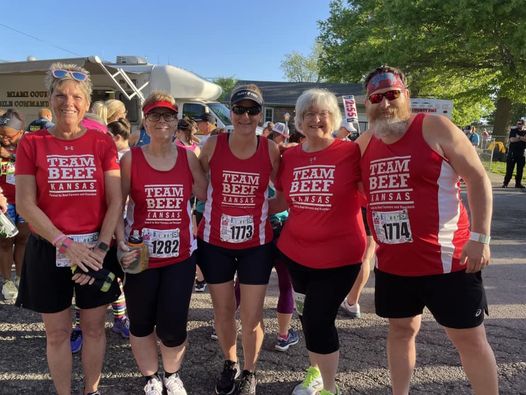
THE KANSAS BEEF CHECKOFF PROVIDES NUTRITION EDUCATION THAT EXTENDS BEYOND STATE LINES.
In partnership with the Nebraska Beef Council (NBC), the Kansas Beef Council (KBC) extends funding for Nutrition Outreach to beef councils in states with some of the largest populations in the country. With this support, the California, New York, and Florida Beef councils can extend nutrition programs that highlight research-based information on beef’s role in a healthy, balanced diet to healthcare professionals.
California Beef Council
Funding support in 2022 helped provide continuing education opportunities such as a Beef Checkoff-sponsored session, an exhibit booth, and a farm-to-table dinner for the California Academy of Nutrition and Dietetics Annual Conference. Attendees heard firsthand from a ranch family about sustainability efforts and the vital role beef farmers and ranchers provide towards supplying sustainable, and reliable beef products.
Additionally, California Beef Council nutrition outreach programs in 2022 increased the visibility of the Beef Checkoff in providing science-based information on beef's role in a healthy lifestyle for all ages. A sponsored session and exhibit at the California WIC (Women, Infant, and Children) Spring Conference brought health professionals an educational program on a common micronutrient deficiency, iron. The presentation examined how introducing foods like beef as a first complementary food can help prevent iron deficiency in infancy and early childhood.
New York Beef Council
The New York Beef Council (NYBC) hosted two sessions for New York’s WIC Virtual Annual Conference focused on incorporating beef into baby-led weaning and beef’s positive role in improving infant and toddler acceptance of new flavors and textures. A virtual lunch-and-learn with NY WIC dietitians, nurses and nutrition educators discussed the benefits of including beef as a first complementary food and as part of younger children’s diets included in the 2020 U.S Dietary Guidelines. Nutrition Outreach extension also goes beyond continuing education opportunities as the Beef Checkoff provided patient take-home resources for clinical sites and physicians’ offices on making every bite count for their infants and toddlers. NYBC sponsored a “Build Your Base” (BYB) booth at the NYS Athletic Association Annual Meeting, which was well-attended. The BYB program highlights beef’s positive nutritional value for fueling high school and college athletes. Beef educational materials and conversation on the Build Your Base program and the benefits it can provide athletic programs were shared. NYBC also engaged with future nutrition professionals by hosting two dietetic intern farm tours at Maple Acres Black Angus and SK Hereford in September. NYBC also engages with consumers through monthly social media throwdowns that create new recipes and connections with beef and nutrition plus added engagement and outreach with foodies and dietitians.
Florida Beef Council
Florida Beef Council (FBC) outreach in 2022 included engaging with registered dietitians at both the national Food and Nutrition Conference and Expo (FNCE) and the Today’s Dietitian Symposium in Orlando. Additionally, FBC provided beef jerky and educational resources during a meeting of the north district of the Florida Academy of Nutrition and Dietetics. Lastly, FBC also hosted a ranch to ribeye tour with a handful of University of Central Florida football players and staff. Attendees learned about best practices in the beef industry and the leanest cuts of beef for cooking. Checkoff-funded state partnerships like these are essential to communicate accurate, science-based information about beef nutrition to key opinion influencers who live in states with high population densities.
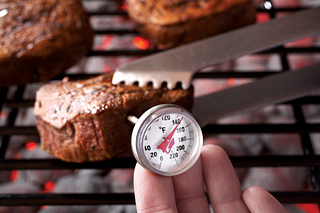
KANSAS BEEF COUNCIL RUNS 12 CUTS OF CHRISTMAS CAMPAIGN
The holidays can be stressful with all the preparation that can go into planning the perfect get-togethers and presents. That is why the Kansas Beef Council created the 12 Cuts of Christmas social media campaign to give consumers creative recipes that highlight beef’s versatility and satisfy an array of people.
Consumers are looking for recipes where they can get amazing taste no matter what cut they select. Therefore, the campaign featured 12 Beef. It’s What’s for Dinner. recipes utilizing 12 beef cuts that vary in cost and versatility. The recipes included a cheesy beef artichoke dip and a classic rib roast. Content was distributed on Instagram and Facebook with links to the specific recipes on BeefItsWhatsforDinner.com.
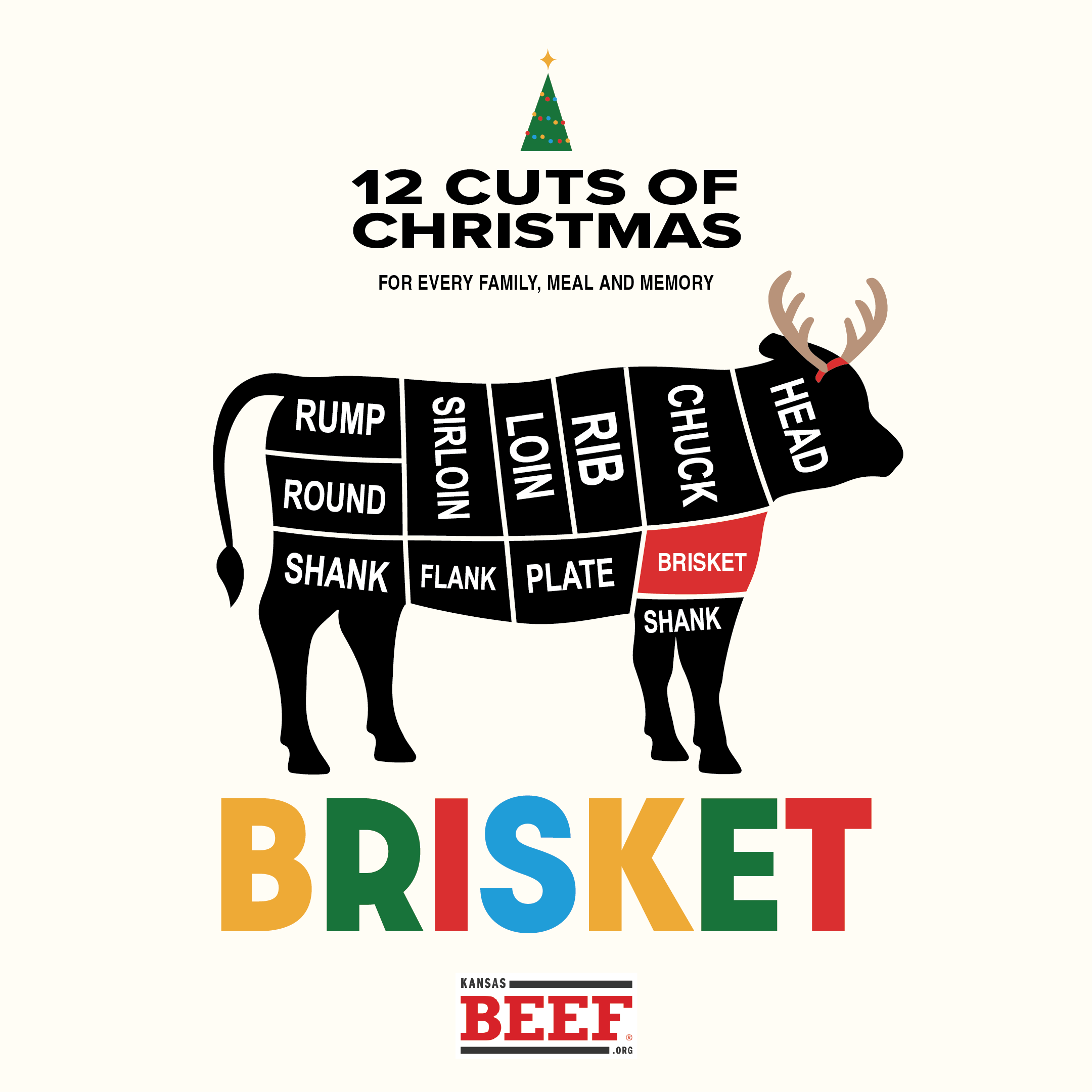
KBC PARTNERS WITH OTHER STATE BEEF COUNCILS ON SUMMER GRILLING E-COMMERCE CAMPAIGN
A partnership between the Kansas, Oklahoma and Nebraska Beef Councils along with NCBA, a contractor to the Beef Checkoff, produced $11.6 million in beef sales across the nation through a Checkoff-funded e-commerce campaign. The campaign ran from July to September with a focus on grilling. It also produced a $49.08 return on investment. This means for every $1 spent on the campaign, there was $49.08 of beef sales produced. The Kansas Beef Council plans on repeating this campaign again in 2023.
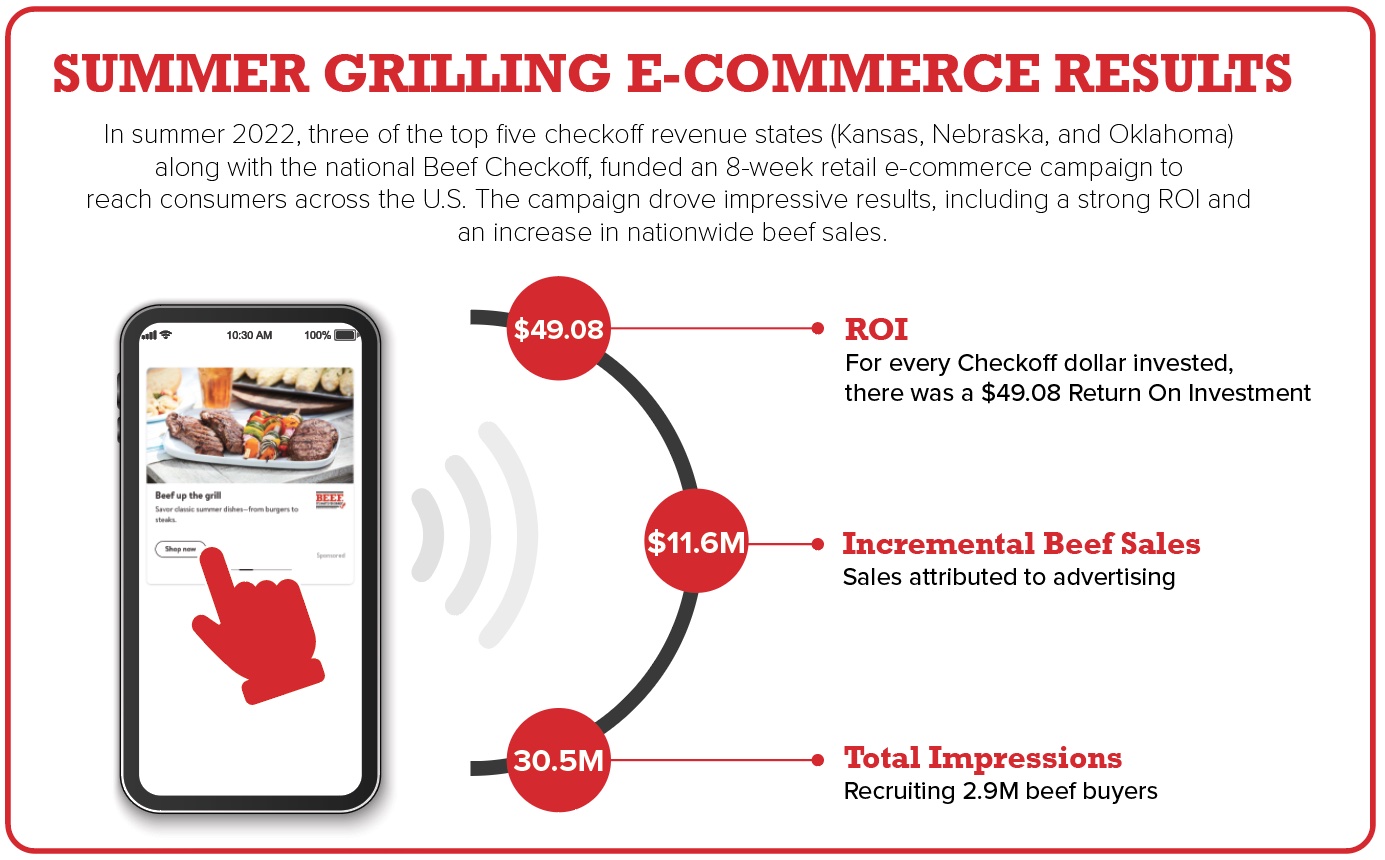
KANSAS BEEF AND K-STATE ATHLETICS TAILGATER OF THE GAME COMPETITION AND WINNER
The inaugural year of the Kansas Beef Council's "Tailgater of the Game" competition with K-State athletics football games showcased loyal fans and an incredibly versatile protein with unbeatable taste - beef. Weekly winning dishes highlighted this taste and versatility and included dishes like smoked brisket, steak and egg Benedict, BBQ flank steak, cowboy Philly Cheesesteaks, and an unbelievable tenderloin recipe.
Rick Bloom of Wichita, Kansas, brought home the winning recipe by serving up an awe-inspiring, spit-roasted beef tenderloin for his tailgate party.
The 1991 K-State graduate of the college of engineering has attended nearly every game since graduating and can be found serving food and beverages to loyal K-State fans at his RV22 parking lot.
Bloom's hospitality and relationship with the student body has made himself somewhat of an attraction on game day, and during the K-State / OSU game, he chose to place beef center stage and won big. Rick, congratulations on winning "Tailgater of the Game"!
Read more about Rick and his K-State story! Read more about Rick and his K-State story here!
KBC SPONSORS TWO KANSAS DIETETIC INTERN NUTRITION COMMUNICATION TRAININGS
The Kansas Beef Council (KBC) recently hosted nutrition communications training workshops for students enrolled in dietetic internship programs at the University of Kansas Medical Center (KUMC) in Kansas City and Kansas State University in Manhattan. More than 30 dietetic interns and faculty members participated in the events.
These checkoff-funded sessions are designed to provide accurate, peer-reviewed scientific research and practical experience with beef to aspiring professionals who will reach thousands of consumers and clients during their careers.
The trainings started with Abby Heidari, registered dietitian and KBC Director of Nutrition, presenting about the health benefits of beef. Then, local Kansas producers shared their operations’ stories and explained the different sectors of the cattle industry. Participants at the KUMC workshop had the opportunity to learn from beef ranchers Wrenn and Arturo Pacheco while KSU interns heard from Isaac and Jill Carr, from Wabaunsee and Geary counties, respectively.
Melissa Joy Dobbins, registered dietitian and owner of Sound Bites, taught how to effectively communicate nutrition information with media outlets. Dobbins has extensive experience in showcasing nutrition through cooking demonstrations on news stations. She also has worked to help dispel misinformation about the cattle industry within the health and nutrition arena. The participants ended the day presenting their own nutritious meals that included beef sirloin.
These trainings allowed students to apply evidence-based guidelines as they practiced delivering science-based protein recommendations in a variety of potential settings, including one-on-one patient counseling and cooking demonstrations.
“Dietitians are people’s go-to source for nutrition and beef production information, and we want to make sure they feel confident to answer any question,” Heidari said. “I wish I would have had these trainings when I was going through school and my internship.”
This was the 11th year for checkoff-funded dietitian training sessions in Kansas.
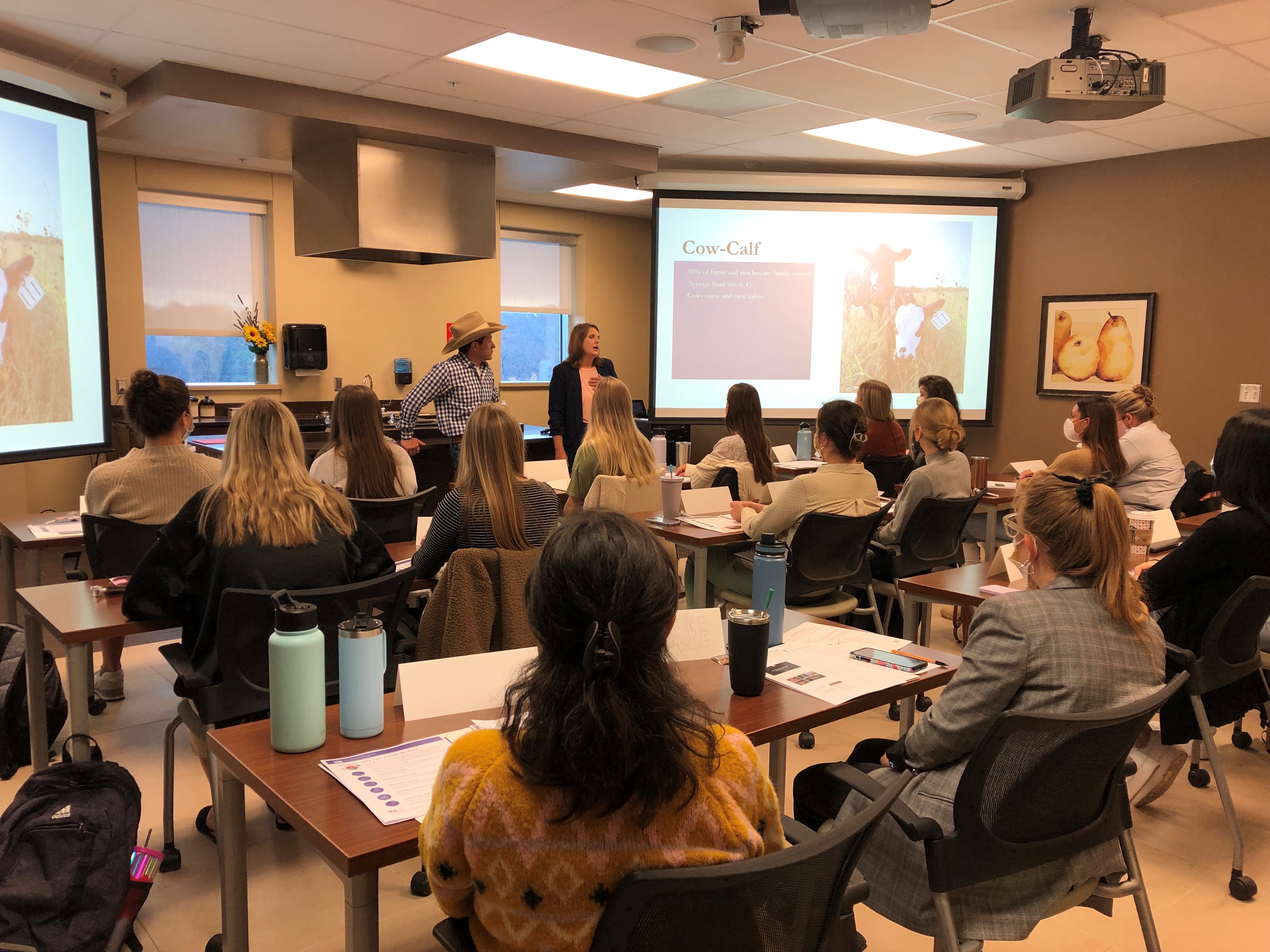
KBC USES CONSUMER PREFERENCES TO PROMOTE BEEF
The Kansas Beef Council (KBC) is committed to reaching consumer audiences effectively and efficiently to increase beef demand in Kansas.
To make that possible, KBC routinely collects market research throughout the state to create checkoff-funded dashboards that use the results from questionnaires various consumers complete about their protein preferences and beef perceptions. KBC’s most recent dashboards included a sample size of 150 people in Kansas and 150 people in the Kansas City area. The questionnaires were taken during the month of August, and respondents were between 18 and 65 years old.
The results show 75% of Kansans and 72% of consumers within the Kansas City metro area have a positive perception of beef. However, those percentages drop down to only 42% and 35%, respectively, when asked about cattle raised specifically for food.
Around 84% of Kansans and 79% of Kansas City residents eat beef weekly. Only 3% of Kansans eat beef less than weekly, but 5% of Kansas City residents never eat beef.
There are three main considerations Kansas consumers have when selecting which protein to purchase and eat: taste, value and safety.
Over 80% of Kansans and Kansas City residents believe beef is great tasting and good for many types of meals. Just 63% of respondents said they believe beef is safe to eat. Consumers stated in the questionnaire that access to quick, easy and healthy recipes could encourage them to increase their beef consumption.
Product packaging is where Kansas consumers primarily get their information about beef nutrition, but Pinterest and influencers are where they look for recipes and information about how cattle are raised. Other social media sites are used to find similar information.
“These dashboards help us understand our local Kansas consumer audiences better, so we can build beef demand,” Kevin Thielen, KBC executive director, said. “Our producers trust that we use their dollar well, and we take every opportunity to do exactly that.”
KBC used this information when navigating their fall social media campaign. The campaign featured 10 fall soups – all featuring beef. The campaign used targeted ads on Instagram, Facebook, Pinterest and TikTok. The content was seen over 750,000 times and had over 160,000 engagements.
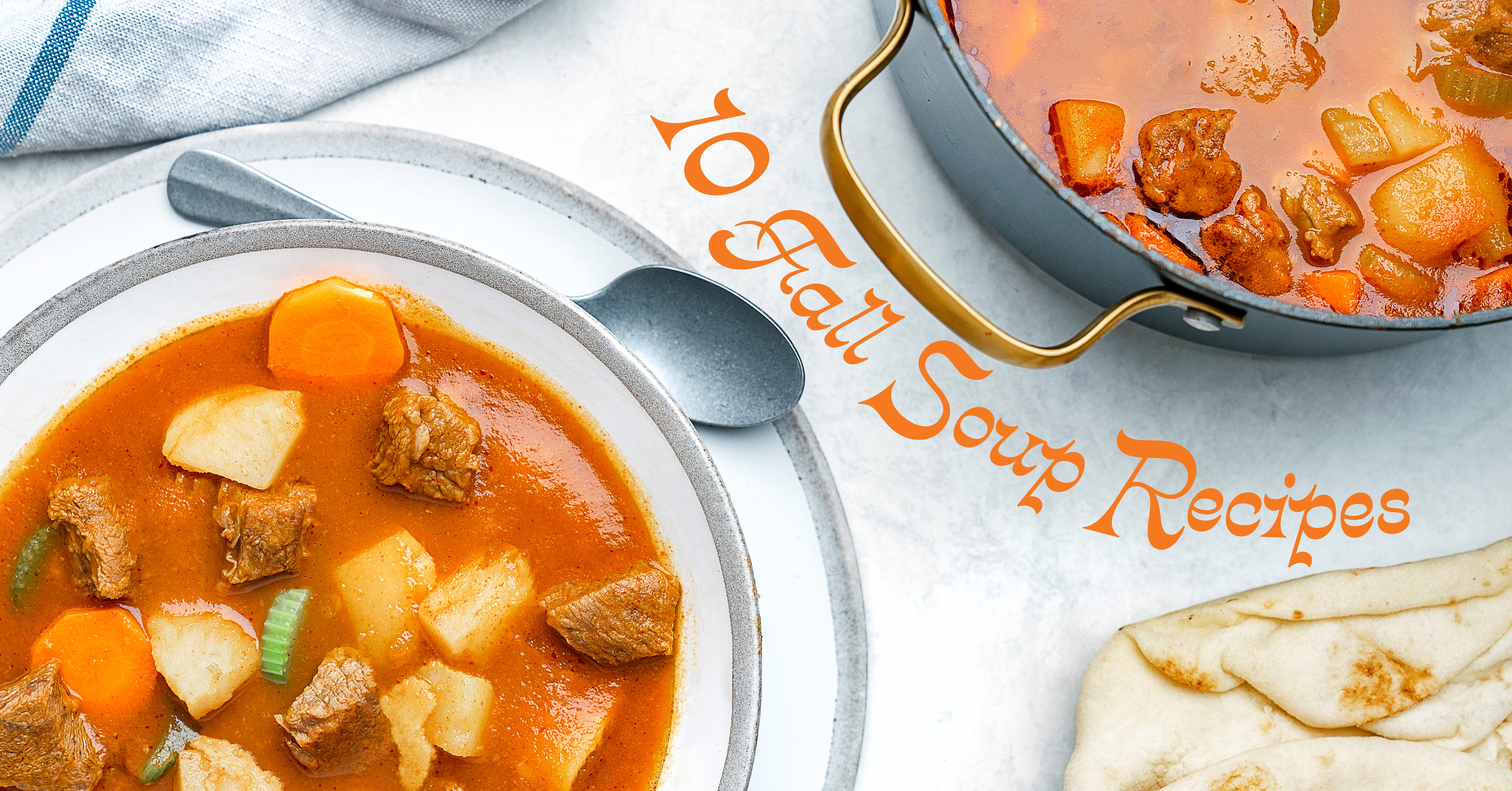
KBC Partners with Jack bobo and don close on virtual webinars
The Kansas Beef Council hosted two Checkoff-funded webinars during the week of October 17. The first was “Can Animal Agriculture Save the World?” with the Nature Conservancy’s Jack Bobo on October 20. Then, American AgCredit’s Don Close presented to the staff and executive committees of the Kansas, Nebraska and Texas beef councils on October 23. His presentation focused on cattle and beef industry market outlooks.
Animal Agriculture Saves the World
Bobo presented to 38 participants from multiple states across the nation for one hour, while White City rancher Debbie Lyons-Blythe helped moderate. Bobo is the director of global food and water policy at The Nature Conservancy. He previously served as the chief executive officer of Futurity, a food foresight company, and wrote the book, “Why Smart People Make Bad Food Choices.”
Bobo started his presentation by highlighting the importance of investing in agriculture and how every $1 invested in the industry results in a $1.43 return on investment.
He also posed the question that if our current food system is considered broken, then when in history has it not been. He went onto to explain that our food system is good and getting better, but it is not improving as fast as we need.
During the presentation, Bobo discussed how producers can best connect with the general consumer audience. “Consumers have never cared more – nor known less – how their food is produced,” he said.
Both producers and consumers are encouraged to move their language from “should” to “could” when communicating with the other. However, Bobo explained, science tells us what producers could do, but the public tells us what we should do.
Finally, Bobo explained that producers sharing the “why” behind their operations is the most impactful when creating trusting relationships with consumer audiences.
“Beating people up with science hardly does anything,” he said.
Watch Bobo’s presentation here.
Market Updates and Outlooks
Don Close, began his presentation, “U.S. Beef and Cattle Outlook”, by discussing some current global agriculture and beef industry problems. Canada is starting to experience some of the drought conditions that American producers have had for the past few years. Then, India is experiencing foot-and-mouth disease and lumpy skin disease outbreaks. He emphasized every producer in a major cattle-producing country currently is experiencing something unusual.
The main portion of Close’s presentation focused on domestic supply and consumer demand.
Herd liquidation will continue until drought conditions improve, which is not projected to happen until 2025 or later. He then went on to explain how the Angus on Holstein crossbreds have helped improve the quality of American-raised beef without increasing the number of total head.
“We don’t have more cattle, the cattle just look different,” Close said.
Close stated that data shows total U.S. beef exports are up 5.5 to 6% YTD. U.S. beef exports to China are up 33% from last year. However, there is some concern with relying on China as a major beef importer due to unstable economic and political conditions.
Finally, Close mentioned how during the pandemic, beef retailers and processors had to pivot most of their beef supply meant for restaurants and wholesale to beef cuts suitable for the grocery store. This change allowed consumers to try high Choice and Prime beef in the convenience of their own homes.
Ultimately, consumer audiences now have a large demand for premium-cut beef to be served at home.
“This is a game changer,” Close said. Consumer perceptions of beef overall have been relatively positive, and they do view beef as a healthy option to include in their diets.
KBC Participates in partnerships in action conference with ncba, 30 other state beef council
Staff from the Kansas Beef Council recently attended the annual Partnerships in Action (PIA) conference, Oct. 12-14, to learn about national Beef Checkoff programs and network with different state beef councils.
More than 80 state staff from 30 state beef councils participated in the event, which was held near Denver in the offices of the National Cattlemen’s Beef Association (NCBA), a contractor to the Beef Checkoff. Attending KBC staff was Scott Stebner, Abby Heidari and Grace Jacobson.
Topics of discussion over the three days included 2023 program strategy, current consumer trends and preferences, and an overview of upcoming Beef. It’s What’s For Dinner. promotions. Attendees also selected from various breakout sessions to receive training in different areas more specific to their individual positions.
“This was a great opportunity to meet with the other state beef councils and NCBA,” Abby Heidari, KBC director of nutrition, says. “PIA allows all of us to not only network but to brainstorm and discuss partnerships to help promote beef around the country.”
The PIA conference is Checkoff-funded and coordinated by the Federation of State Beef Councils, which is supported by, and provides support to, state beef councils across the country including the Kansas Beef Council. The Federation, which celebrates its 60th anniversary in 2023, was established by grassroots producers as a more concerted and focused effort to conduct national beef research and promotion programs.
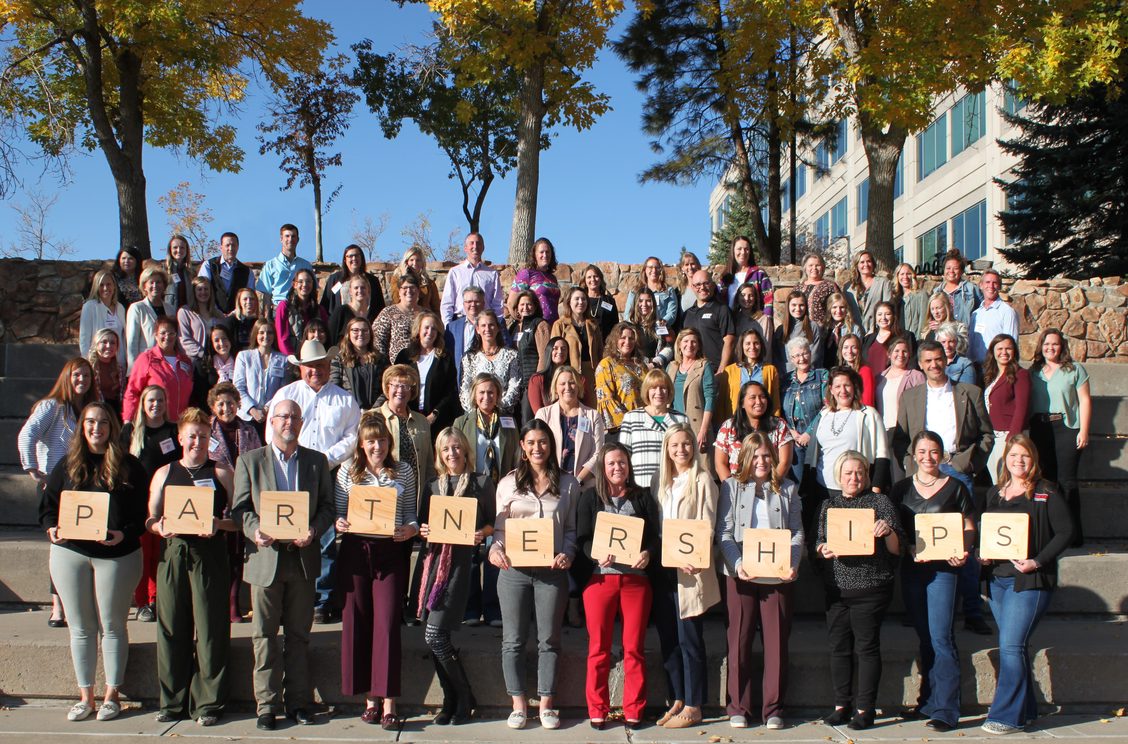
Research shows ending U.S. Beef trade could be a catastrophe for the industry
A recent Checkoff- funded report revealed economic disaster would be the end result if all U.S. beef trade was eliminated. The report was authored by agricultural economists Glynn Tonsor of Kansas State University and Derrell Peel from Oklahoma State University. The report was commissioned by the Kansas Beef Council, Oklahoma Beef Council and Texas Beef Council.
According to the report, if both U.S. beef exports and imports declined by just 10%, prices and quantities of feeder cattle and fed cattle would fall significantly. Cumulatively, a 10% reduction in beef trade over 10 years would create a loss of $12.9 billion to those selling feeder cattle and $6.8 billion to fed cattle sellers. A scenario where 100% of U.S. beef trade was lost would suggest a catastrophic impact, broadly approximated in the report to cost those selling feeder cattle $129 billion and fed cattle $68 billion, leading to a significantly smaller industry.
The authors also calculated the impact on individual states. In the case of a 10% decrease in U.S. beef trade, Kansans selling feeder cattle would experience a $611 million loss and those selling fed cattle would see a $1.22 billion loss. If completely eliminated, feeder cattle sellers in Kansas could stand to lose $9.1 billion over a 10-year period.
Additionally, the report outlines why the U.S. exports and imports beef and provides a review of historical beef trade data. The authors highlight that implied trade prices clearly show the U.S. receives a higher dollar-per-pound value for exports than it pays for imports. From 2016 through 2020, the U.S. average annual unprepared beef exports were 2.05 billion pounds, which had an export value of $6.4 billion and an implied export price of $3.13/lb. Conversely, the average annual unprepared beef imports for that same time were 2.30 billion pounds, with an import value of $5.8 billion and an implied import price of $2.52/lb. The authors state in the report these statistics “clearly indicate participation in the global market provides a net economic gain.”
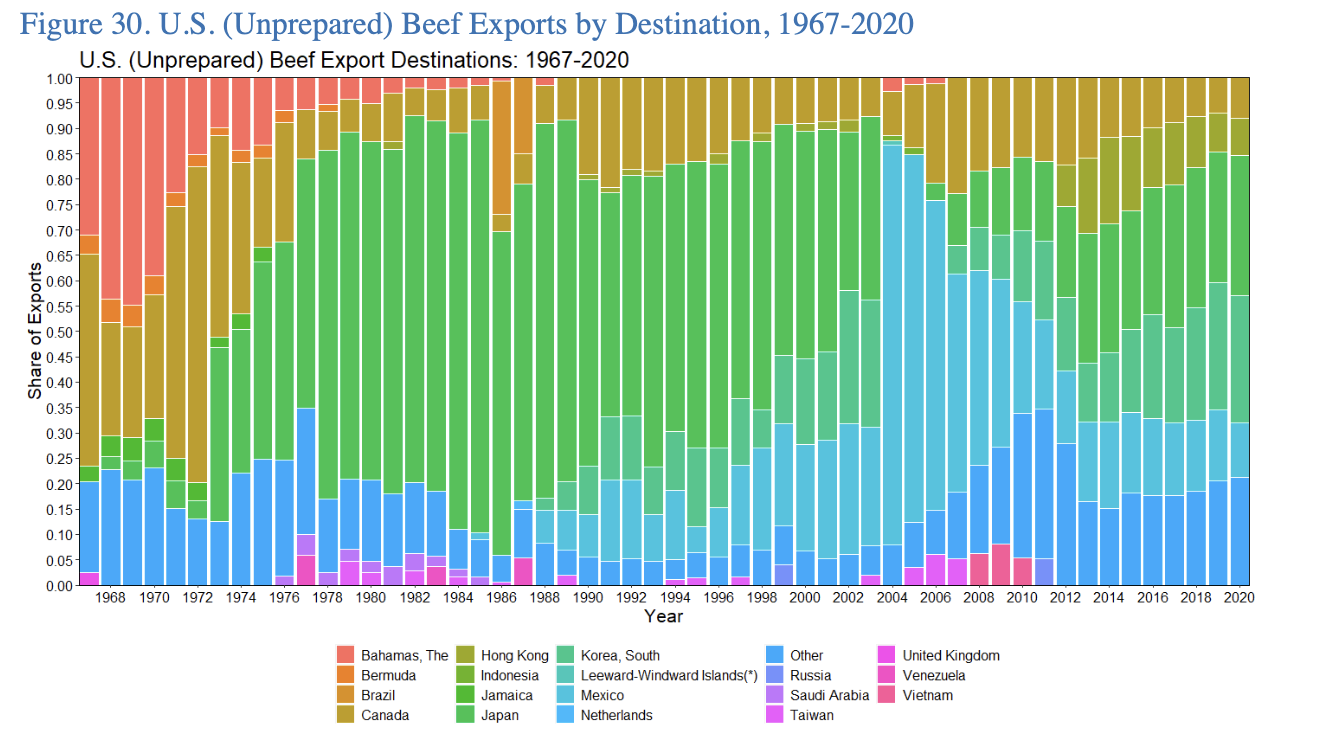
KBC and BIWFD release summer campaign results
The leaves officially have started changing colors. That means summer is over. With that, the Kansas Beef Council and Beef. It’s What’s for Dinner have released the results of their summer grilling campaign on the Sam’s Club website that ran from May 25 to July 3.
It previously was expected that the checkoff-funded campaign would reach 43 million impressions nationwide; however, it exceeded expectations by generating 90.4 million impressions and 71,700 clicks. In Kansas, the campaign produced 713,285 impressions, which led to a 19.5% sales lift.
Nationally, the campaign produced a 16.05% sales lift and a $27.45 return-on-ad-spend (ROAS). Kansas produced a $23.16 ROAS.
The most popular products bought online during the campaign were ground beef variations, rib eye steak and strip steak. There was more variety with in-store purchases with tenderloin filet and beef round being two of the top five products bought.
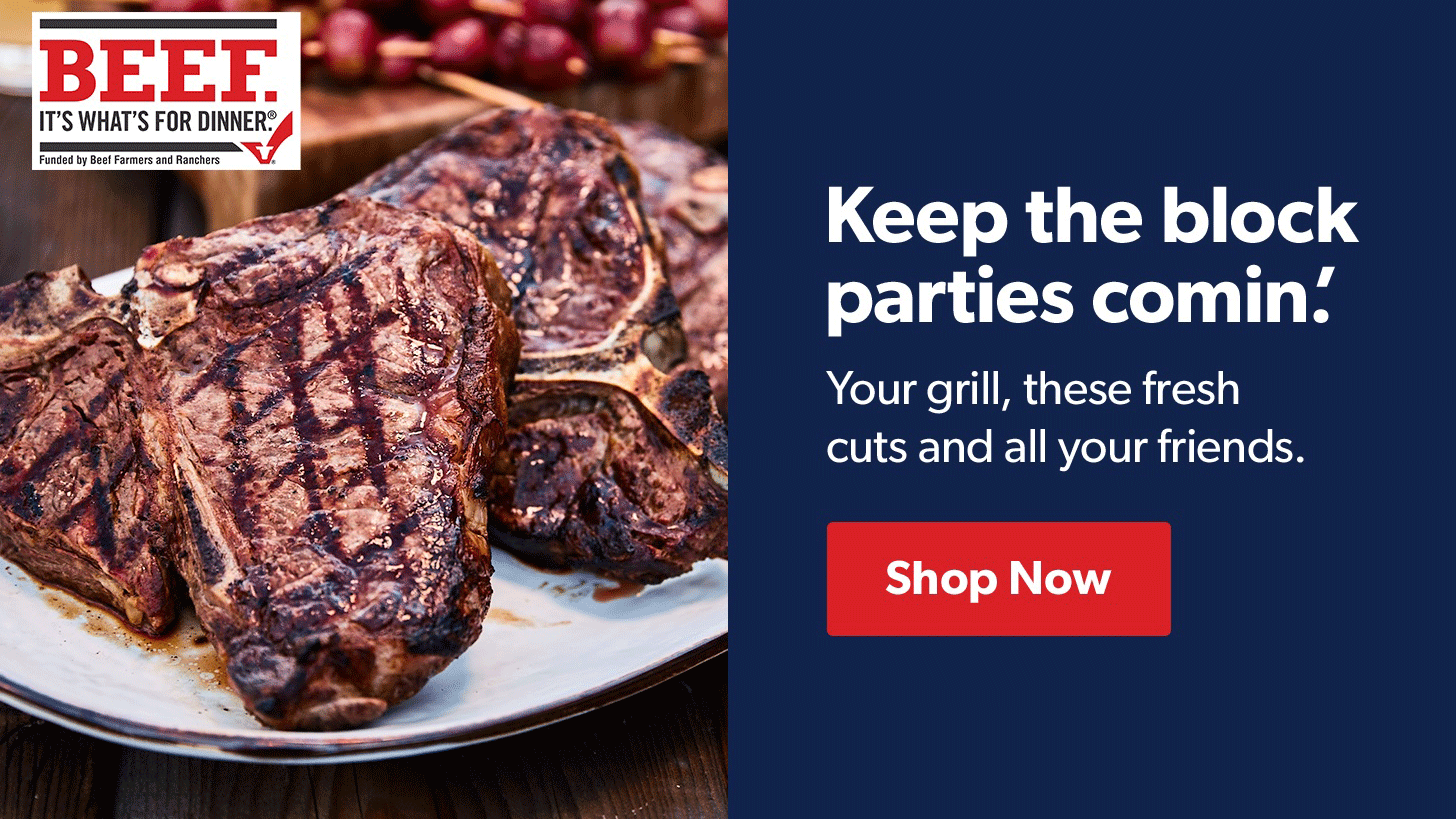
Master food volunteers become confident cooking with beef
The Kansas Beef Council (KBC) provided a training session titled “Confident Cooking with Beef” on September 21 for Johnson County K-State Research and Extension Master Food Volunteers at the K-State Olathe Campus. Abby Heidari, director of nutrition, focused on beef nutrition and cooking techniques. In addition to also sharing recipes, Heidari answered questions and clarified misconceptions by sharing science-based information about beef production, its role in a balanced diet and sustainability.
Checkoff-funded resources were shared with the attendees, who will volunteer 40+ hours each during the next year through community nutrition and cooking classes that support the research-based mission of K-State Research and Extension.
Kbc goes to the association for healthcare foodservice annual conference
The Kansas Beef Council (KBC) connected with over 500 hospital and senior dining foodservice food management professionals at the Association for Healthcare Foodservice annual conference in Scottsdale, AZ on August 10. A Beef Checkoff-sponsored networking table provided the landscape to showcase beef nutrition resources and answer any questions about beef from attendees. Patti Dollarhide, KBC nutrition program consultant, bridged the gap by featuring science-based beef nutrition and production information and highlighting audience-focused beef cut and menu inspiration resources. A new foodservice webpage was made to give these foodservice decision-makers with resources to effectively build trust in beef for future menu planning.
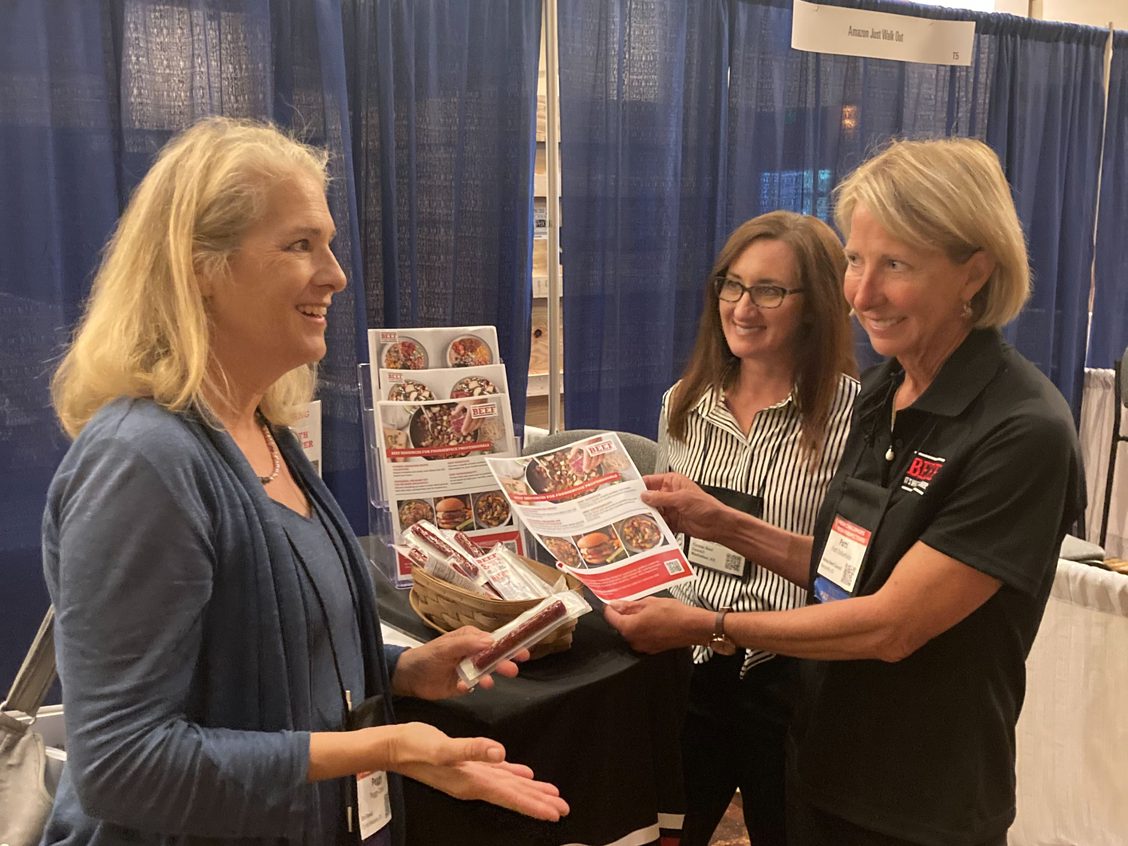
KBC LAUNCHES BACK-TO-SCHOOL RECIPE CAMPAIGN
School is back in session and with that come school sports, extracurricular activities and a fast-paced schedule that can make even the simplest of dinners seem daunting. To help families navigate this busy season and choose beef as their go-to protein of choice, the Kansas Beef Council (KBC) compiled a list of 27 recipes perfect for hectic weeknights and discerning taste buds.
The Beef. It’s What’s for Dinner. recipes have big flavor and nutrition, but little prep time and include dishes such as lasagna, pot roast and BBQ mango short ribs that the whole family will love.
The checkoff-funded back-to-school campaign is being promoted on -digital platforms commonly frequented by mothers with school-aged children, such as Instagram, Facebook and Pinterest.
Advertisements began in early August and already have sent thousands of consumers to KansasBeef.org.
“The essential nutrients found in beef – like protein, iron, zinc and B vitamins – provide growing bodies and minds with the fuel they need to be successful in and out of the classroom,” Abby Heidari, KBC director of nutrition, said.
All the back-to-school recipes can be viewed here.
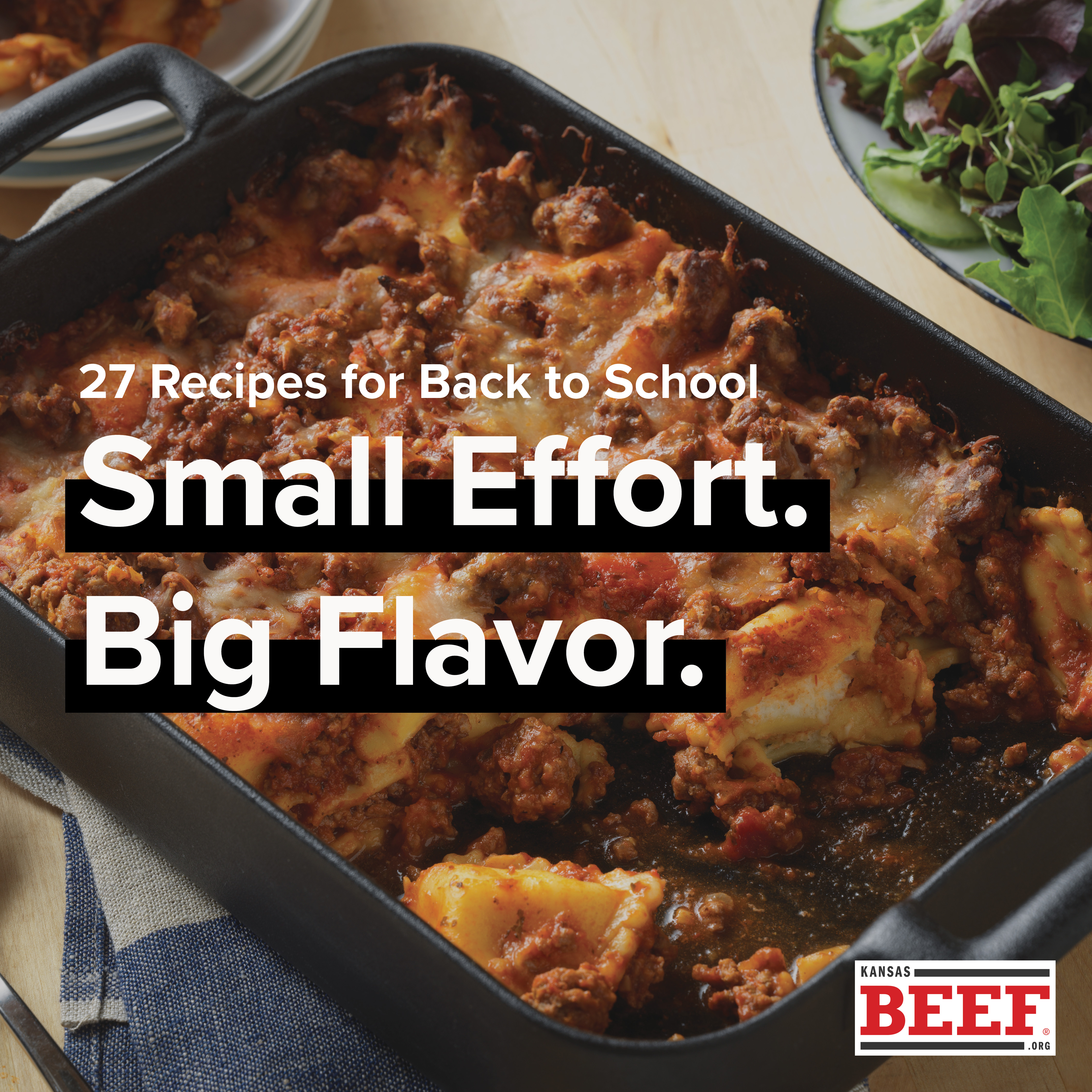
Get beef into your local schools
Now that it is officially August, the back-to-school season has begun. During this time, teachers are collecting supplies to ensure a productive and fulfilling educational year.The Beef Certificate Program helps teachers bring beef into the classroom. The Beef Certificate Program (BCP) is a Beef Checkoff-funded reimbursement program through the Kansas Beef Council (KBC) that helps provide high-quality beef in classrooms. BCP is offered to Family and Consumer Sciences (FCS) and ProStart programs for use in classes and teaching labs.
In the 2021-2022 academic year, 101 Kansas high schools and middle schools across 44 counties participated in BCP. This resulted in more than 15,000 students being reached through the program.
“This program helps ensure that students learn accurate information about beef’s role in a healthy and balanced diet while providing teachers the resources they need to succeed in the classroom,” Abby Heidari, KBC director of nutrition, said.
BCP includes multiple resources outside of beef reimbursement for teachers. These resources include lessons about the beef cycle, sustainability, beef in the diet and many more. The lessons are designed for FCS programs; however, they all include STEM ties to help teachers make connections across curriculum.
Teachers who participate in BCP also have the potential to gain continuing education hours through the Raw Truth About Beef curriculum.
Here is where you can find more information about BCP, and here is where more information about beef in schools can be found.
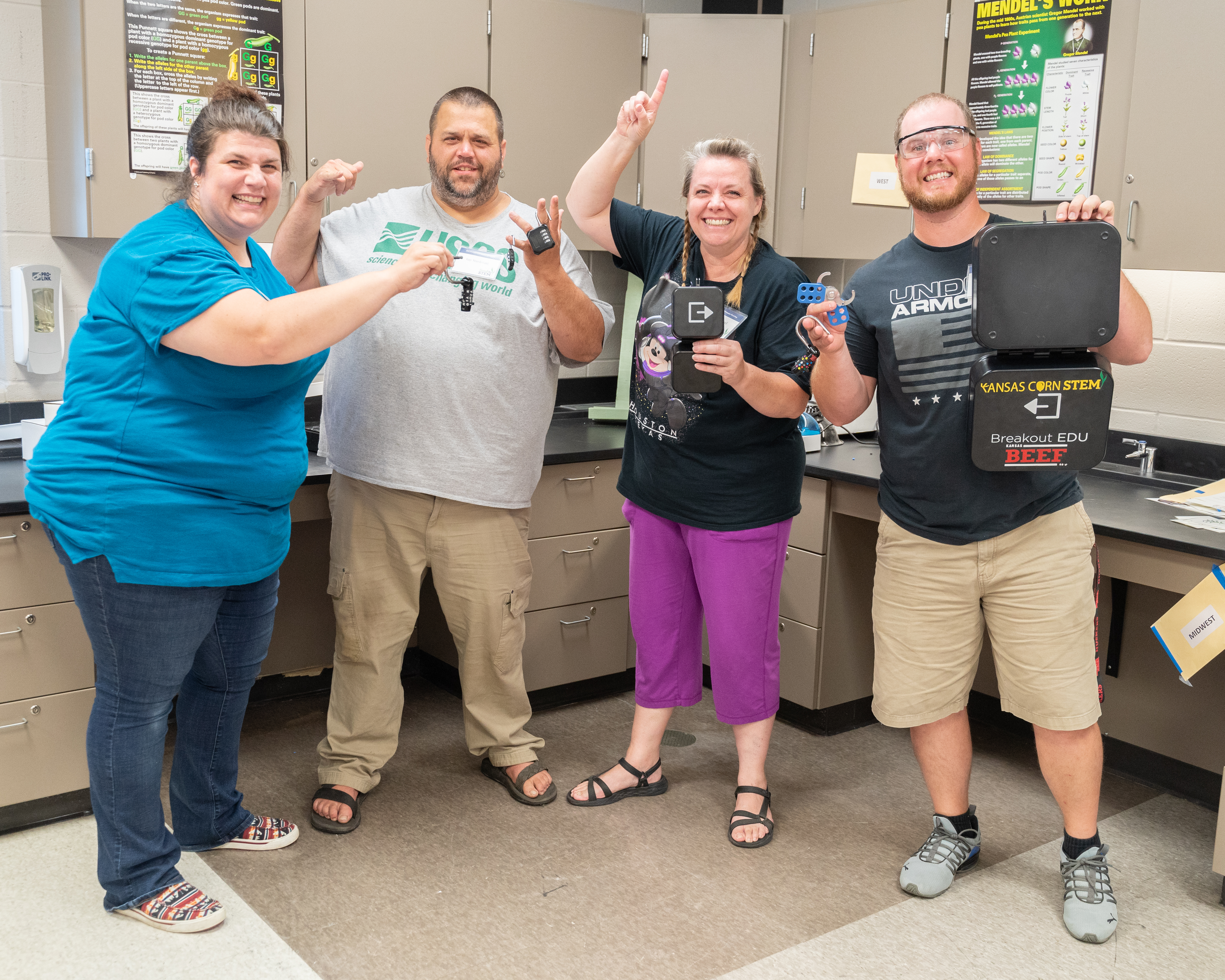
Kansas beef council starts slow cooker summer campaign
Summer typically consists of block parties, family get-togethers and vacations. For consumers, this calls for easy-to-make meals for large groups. The slow cooker is seen as the perfect way to make tasty meals without spending hours in the kitchen. The Kansas Beef Council (KBC) has pioneered a slow cooker summer recipe campaign funded by the Beef Checkoff to meet these consumer demands and trends. This campaign is an integrated social media campaign utilizing Facebook, Instagram, Pinterest, YouTube and TikTok to reach different demographics. All content was produced by KBC staff.
The recipes include a sweet onion pepper sandwich, whiskey molasses shredded beef sliders, BBQ brisket, tangy BBQ beef sandwiches and beef tacos. These recipes feature more affordable cuts of beef, so consumers do not have to sacrifice taste due to cost. The campaign also provides suggestions for possible cut swaps.
Whiskey molasses shredded beef sliders were the first recipe posted at the end of June. KBC Director of Nutrition Abby Heidari kicked off the campaign with an appearance on KSNT. The campaign includes promoted posts and targeted ads. KBC targeted posts currently are performing better than industry averages.
The remaining recipes will be posted throughout the rest of the summer months. Check out the Beef. It’s What’s for Dinner. website for the recipes. Then, find the videos on YouTube here.
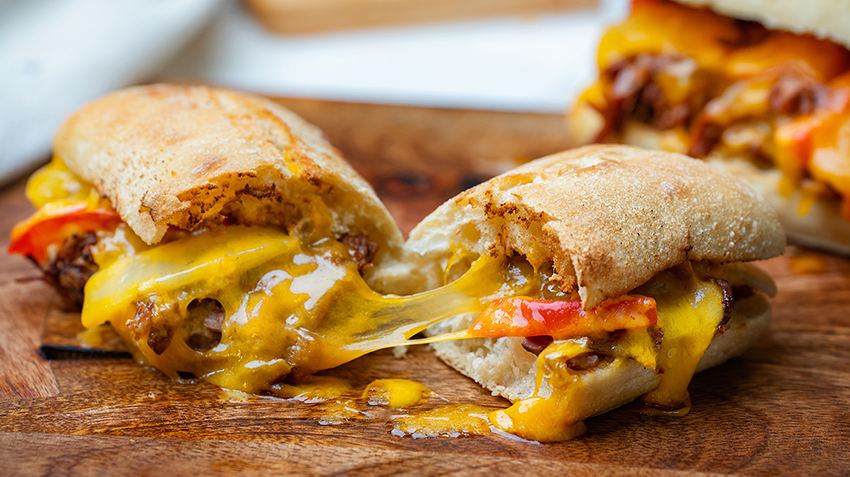
KANSAS BEEF COUNCIL SHOWCASES SUMMER SLOW COOKER RECIPES
Abby Heidari, registered dietitian and Kansas Beef Council (KBC) Director of Nutrition, appeared on KSNT’s morning segment to share a nutritious and affordable beef recipe on June 30. KSNT is an NBC affiliate based in Topeka, Kansas that covers local news in northeast Kansas.
Heidari shared a Slow-Cooker Whiskey Molasses Shredded Beef recipe that provides a delicious and economical way to feed family and friends during the Independence Day weekend. Along with being affordable, the recipe is easy to make and allows consumers more time with family and less time worrying about the food.
“This was a great way to start our summer slow cooker series,” Heidari said. “These recipes are nutritious, easy to make and most importantly delicious.”
To address possible price changes or shortages, Heidari suggests alternative cuts consumers can use to get a similar result. For example, the top round or shoulder roast are also economical cuts of beef that can be swapped in for the same taste.
In addition to this recipe, Heidari also shared how consumers can find lean cuts of beef at the grocery store. “Many of America’s favorite cuts of beef are considered lean and they may not even know it,” she says. “If it has the word round or loin in the cut name, it’s lean.”
This Checkoff-funded programing is the beginning of an integrated marketing plan in an effort to increase beef demand. This plan includes utilizing streaming TV, radio and social media platforms to share KBC’s messaging.
This year KBC-created and promoted content has been viewed currently over 18 million times in 2022.
View the Slow-Cooker Whiskey Molasses Shredded Beef Sliders recipes here.
Kbc Promotes beef's unique nutrient profile to health professionals
The Kansas Beef Council (KBC) recently partnered with the Kansas Nutrition Council (KNC) to provide a presentation that reached 60 registered dietitians and public health nutritionists at their Annual Conference in Manhattan, KS. The checkoff-sponsored session titled “School-aged Child Nutrition Guidelines: Broad Implications from Small Changes” was presented by Texas-based registered dietitian Hawley Poinsett. As a weight management dietitian, and founder CEO of Let’s Love Food Again®, Poinsett discussed the new 2020-2025 dietary guidelines, their impact on school-aged children and how to identify nutrients of concern. While many children do not have access to nutritious meals at home, it’s critical for school lunches to provide enough nutrients to support their growing brains and bodies. Poinsett noted that adolescents are often under-consuming many nutrients found in beef, such as high-quality protein, iron, zinc, choline and vitamins B6 and B12. Poinsett encouraged attendees to make menu-planning decisions grounded in science and the well-established nutritional needs of youth. During the conference, KBC staff provided attendees with Beef Checkoff resources including six standardized beef school recipes. Including lean meats, like beef, within school meals ensures kids get the nutrients they need during critical stages of growth and development.
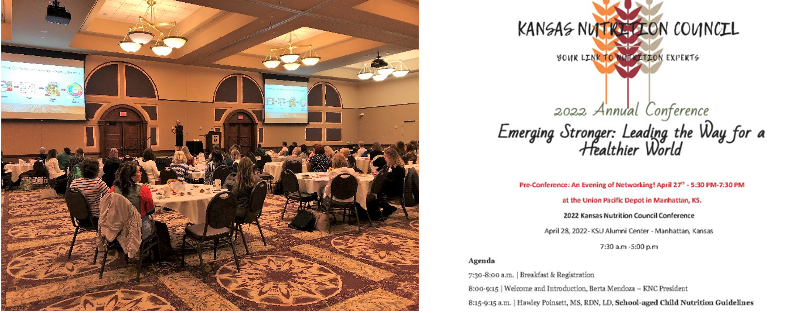
Kansas Beef Council showcases "beef in the early years" at pediatrician conference
Kansas Beef Council (KBC) director of nutrition, Abby Heidari, connected with pediatricians at the Kansas Chapter of the American Academy of Pediatrics spring conference in Overland Park, Kansas. The outreach, funded by the Beef Checkoff, advanced awareness that beef is a nutritious, complementary first food for babies starting at around six months of age and continuing throughout childhood. Physicians attending the conference learned about beef’s role in early child development and how parents can include beef as a first complementary food. Essential programming like this is part of a broader effort by KBC to offer health professionals science-based resources demonstrating how beef can be part of a healthy, balanced diet.
In addition to this in-conference event, KBC has collaborated with several states to produce short informational videos educating parents about the benefits of beef as a first complementary food.
Learn more about the checkoff-funded Beef in the Early Years program
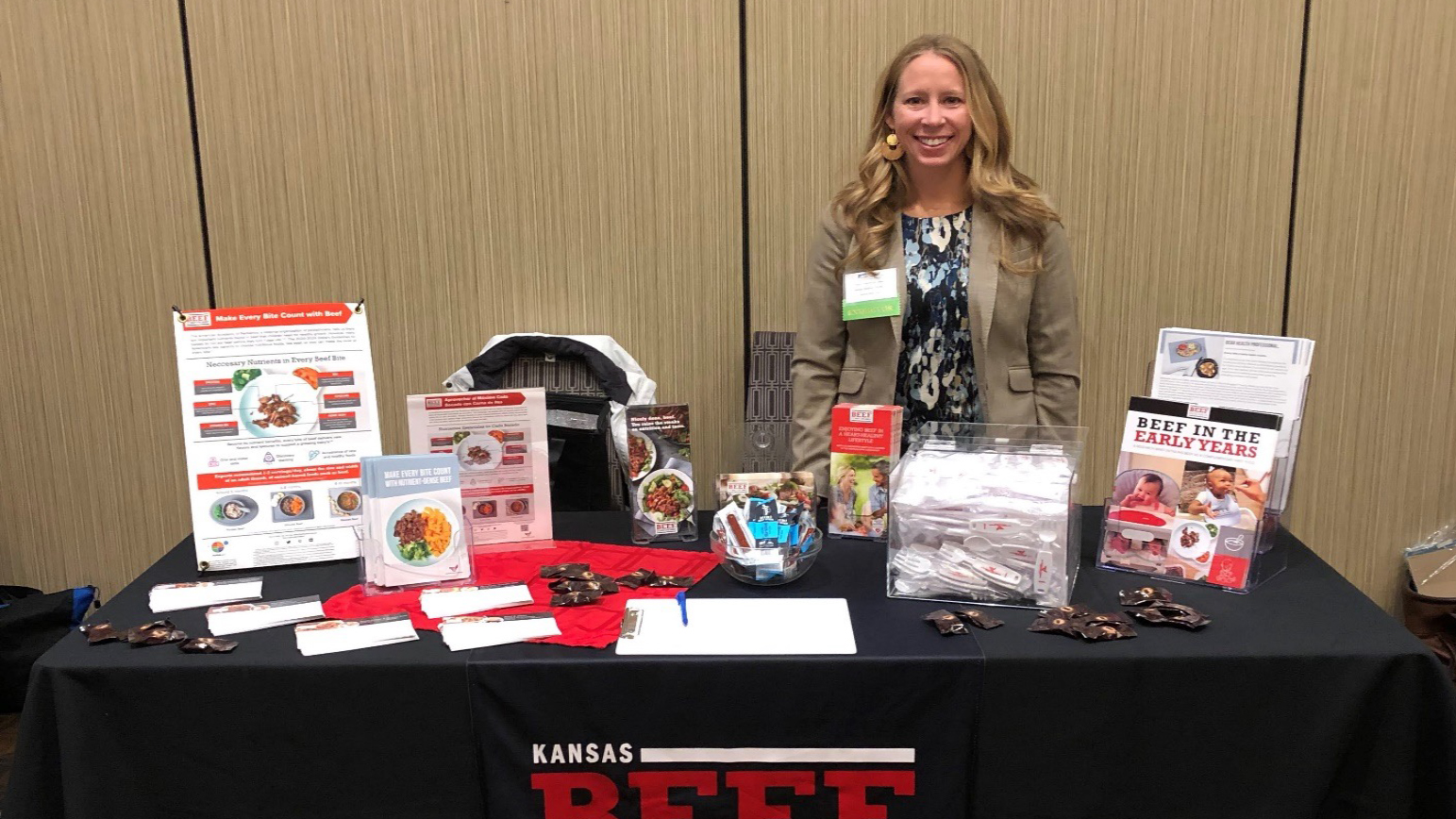
short nutrition videos reach consumers in multiple states
The Kansas Beef Council (KBC) collaborated with the Nebraska, Oklahoma and California beef councils to create over 40 nutrition videos to publish on YouTube, social media and other video-centric platforms reaching urban consumers. The videos highlight the health benefits of including beef in the diet, show parents how beef complements a balanced diet for growing children, and provide adults with these KBC-produced videos will allow other states, especially ones with high urban populations, to push out content effectively without the large costs associated with producing video content. Within Kansas, the videos are already performing well as they are advertised on YouTube and social media platforms like TikTok.
kbc advertisements showcase beef during Olympic programming
While winter athletes from around the globe converge onto the slopes and ice rinks of Beijing to compete for the podium at the 2022 Winter Olympics, consumers back in Kansas are seeing over 80 checkoff-funded television advertisements featuring the King of Protein, beef.
The programming, which airs from February 4 to February 20, features Kansas Beef Council’s (KBC) “One Simple Ingredient” campaign. The 30-second advertisement showcases youth athletes fueling their potential with beef, a delicious protein with 10 essential nutrients and just one simple ingredient, something alternative proteins simply cannot provide.
The campaign is estimated to generate over one million views through popular daytime, Olympic Zone, and PrimeTime Olympic coverage on NBC and affiliate stations throughout Kansas.
In addition to these broadcast segments, KBC has started the year advocating for the benefits of including beef in a healthy and active lifestyle and providing simple and delicious recipes for consumers. Content produced and disseminated by KBC has been seen over 3 million times in the first 5 weeks of 2022.
